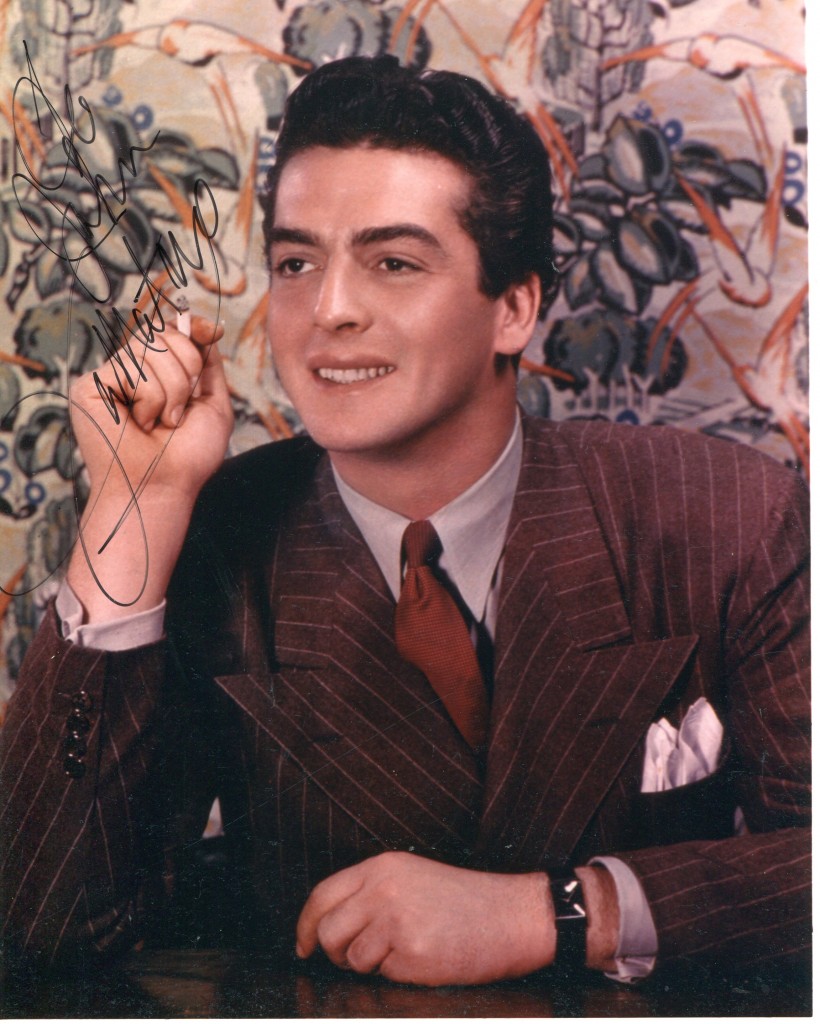
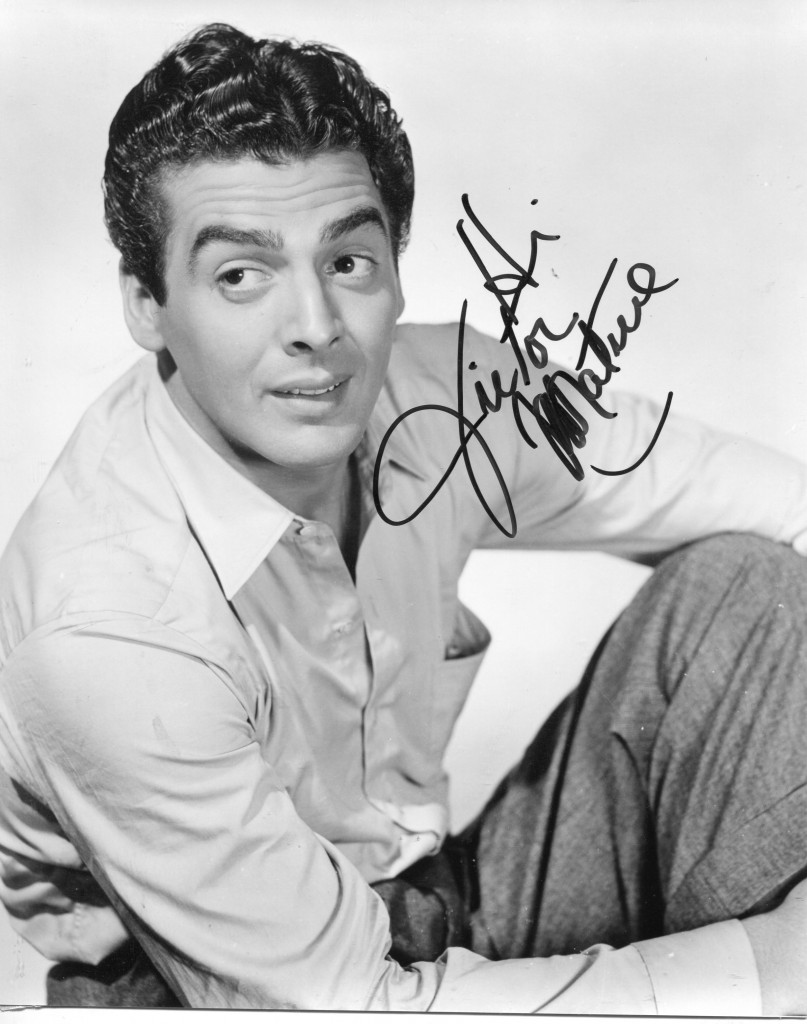
“Independent” obituary:VICTOR MATURE was once billed by his studio as “a beautiful hunk of man” and in the Forties he came to personify the latest term signifying male sex-appeal – beefcake.
Victor Mature obituary in “The Independent”.
“‘Actually, I am a golfer. That is my real occupation. I never was an actor, ask anybody, particularly the critics. This is my first Hollywood film in ten years and I only did it because I was getting bored – Victor Mature in 1968. Still, he must have had something to have got regular employment as an actor over a 30 year period. When he started, he was christened ‘the Hunk’ and had a strong shopgirl following. His name became a synonym for beefcake, 40s male sex appeal. He had therefore few fans among men, despite the fact that most of his films were actioners. He was never a sympathetic hero but on occasion made a convincing villain – tough, disdainful, sinister. He was impervious to the situations around him. You never got an inkling of what he was thinking or feeling. But , in the sense that he moved comfortably before a camera and knew what chalk marks to stand on, he was an actor”. – David Shipman in “The Great Movie Stars – The International Years”. (1972).
Victor Mature was born in Louisville, Kentucky in 1913. He was a very popular leading man in the 1940’s and 50’s and made such classics as “My Darling Clementine” directed by John Ford in 1946, “The Robe”, “Demetrius and the Gladiators” and “Violent Saturday”. His leading ladies included Betty Grable, Rita Hayworth, Susan Hayward, Jean Simmons and Esther Williams. Victor Mature died in 1999 at the age of 86.
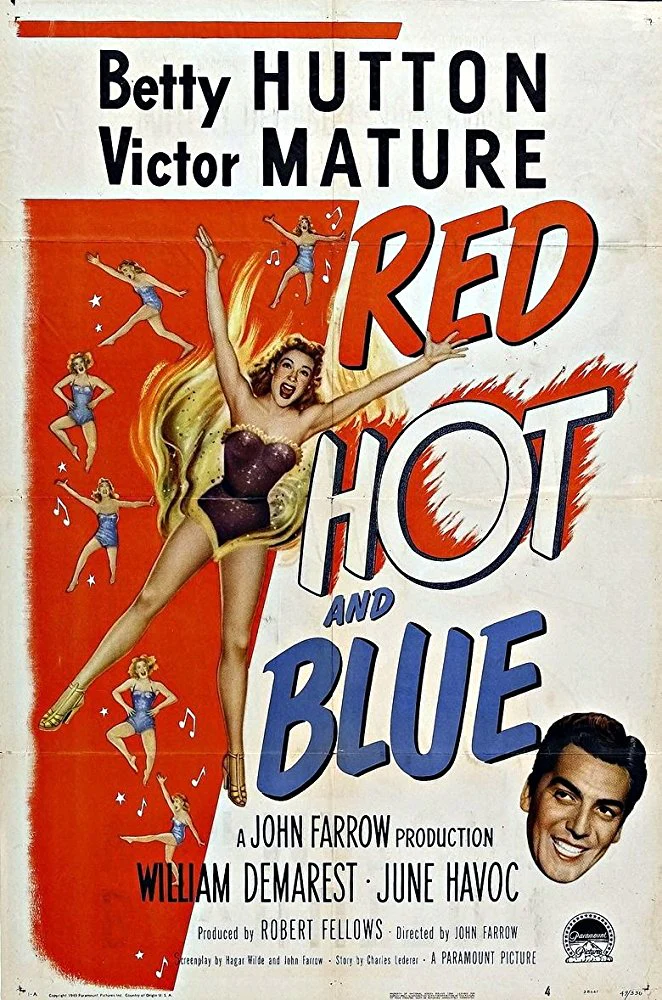
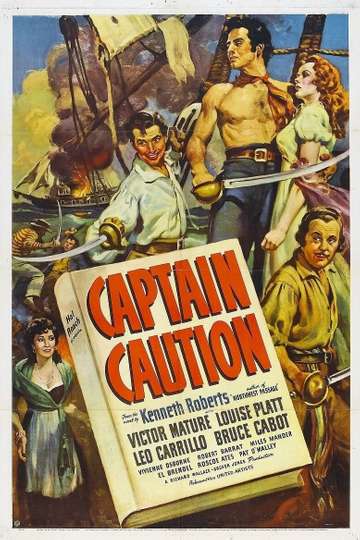
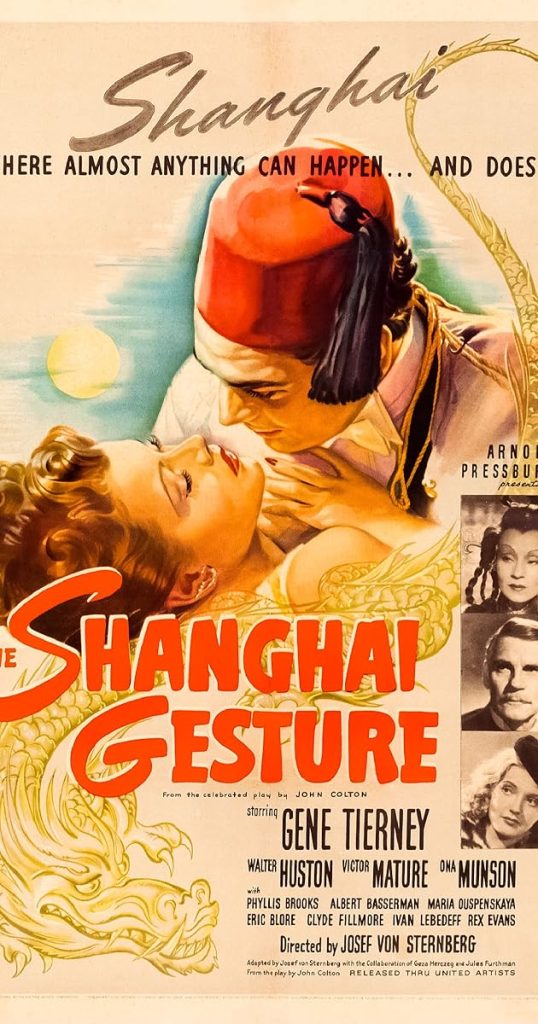
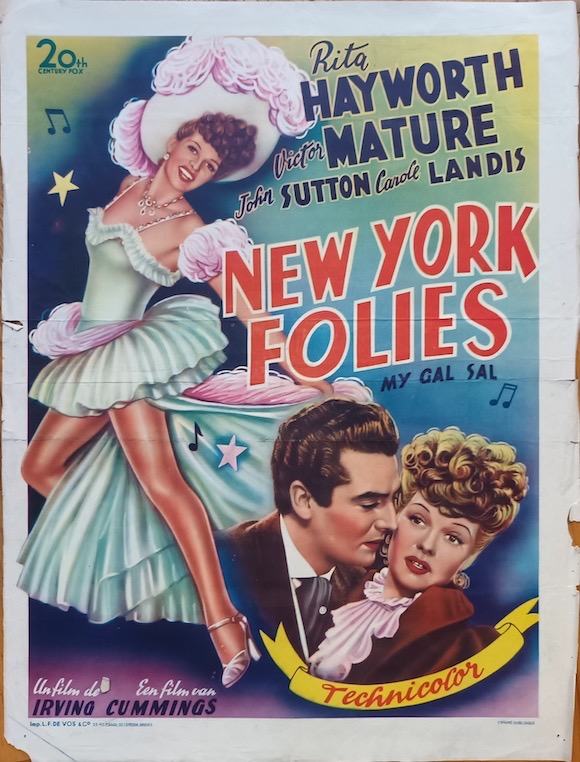
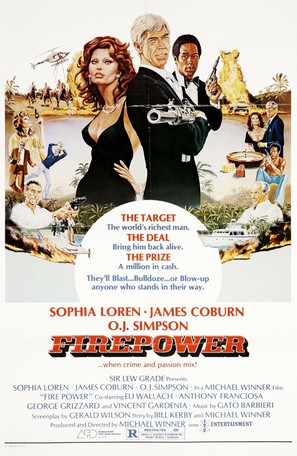
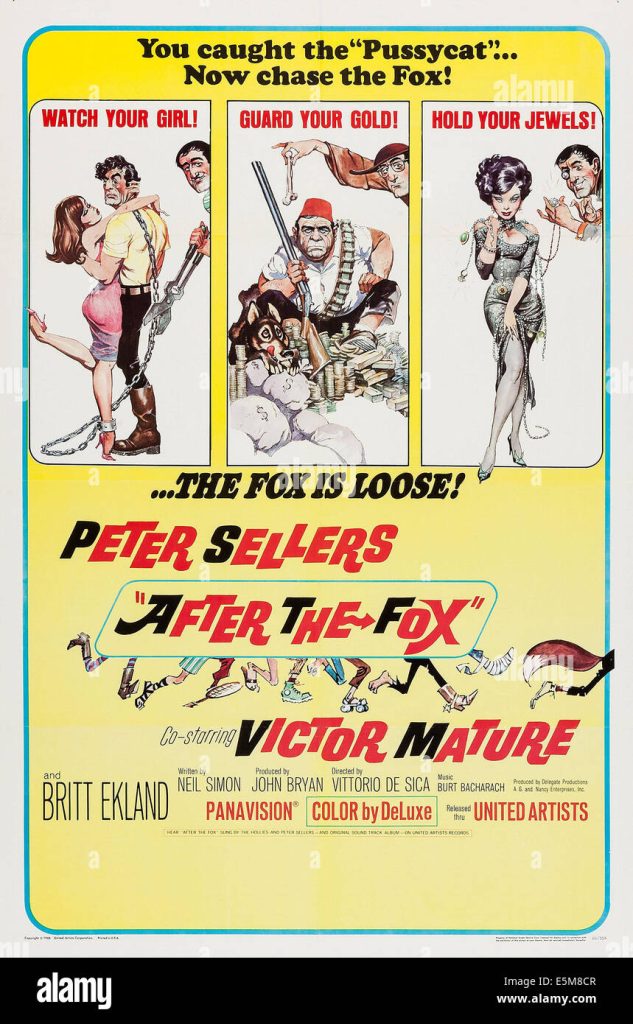
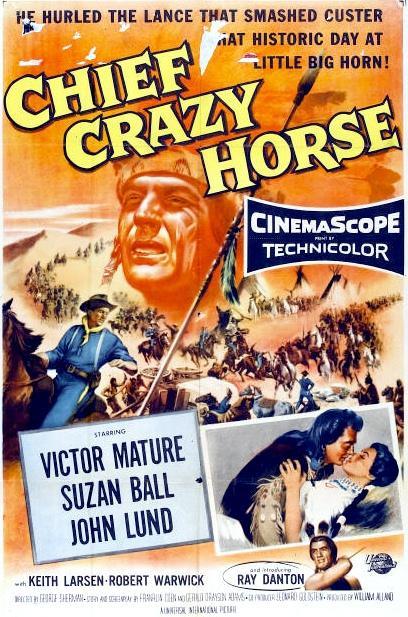
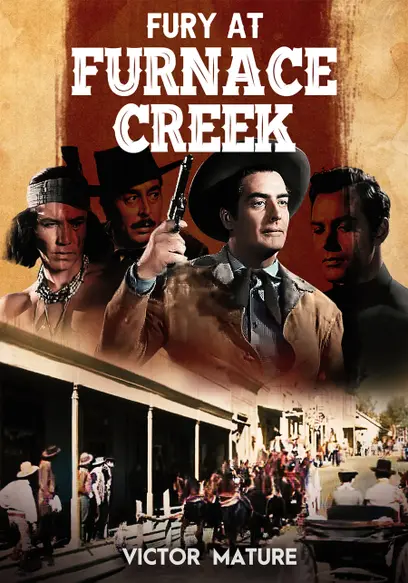
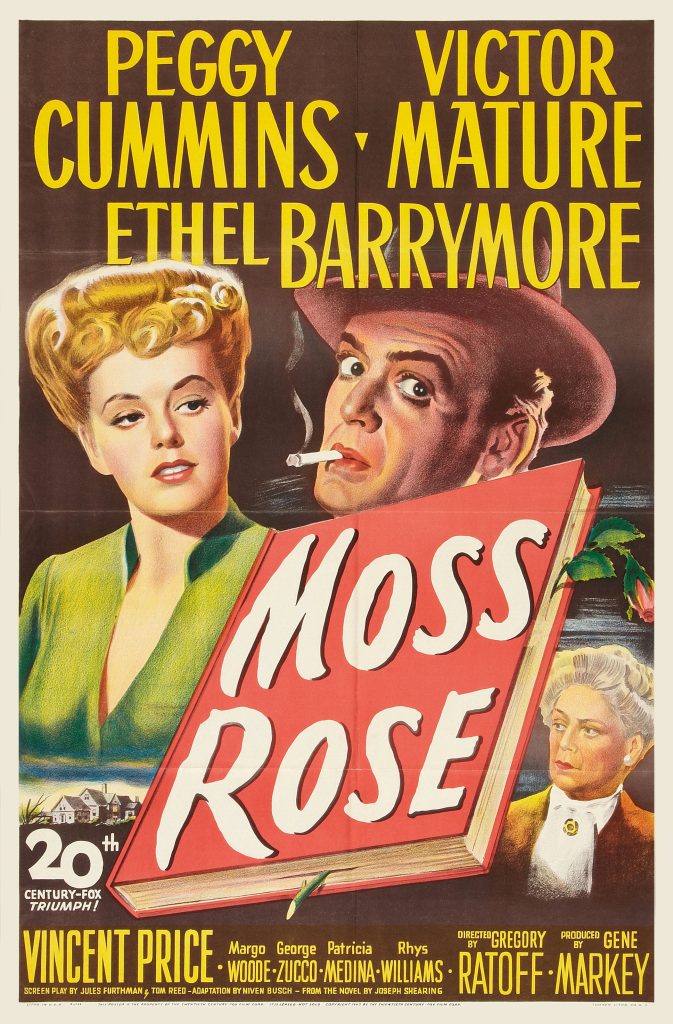
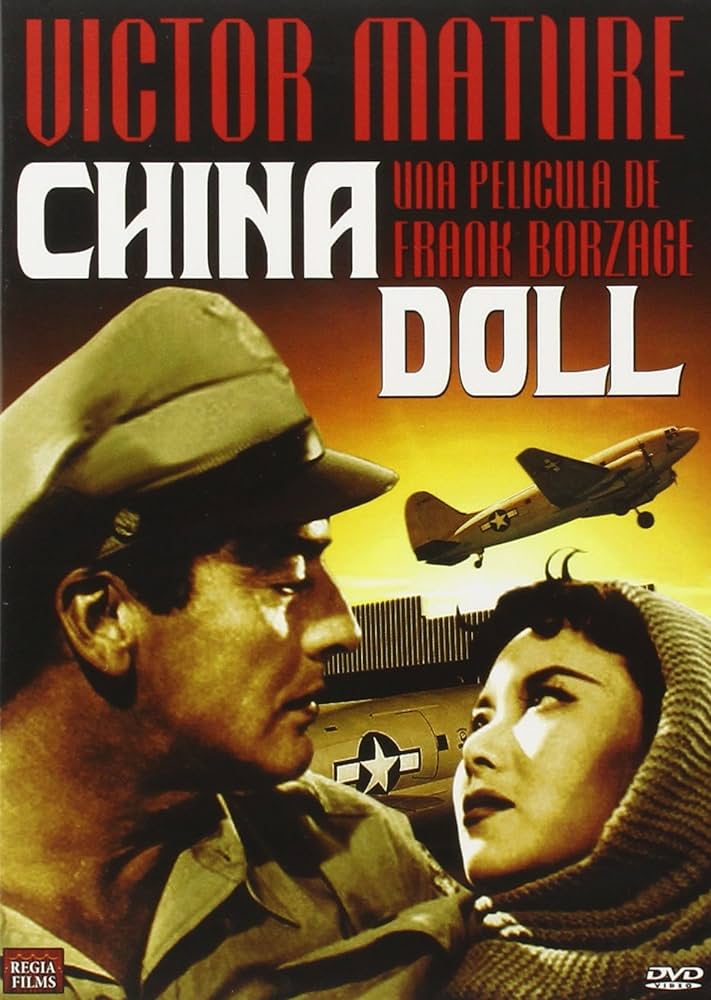
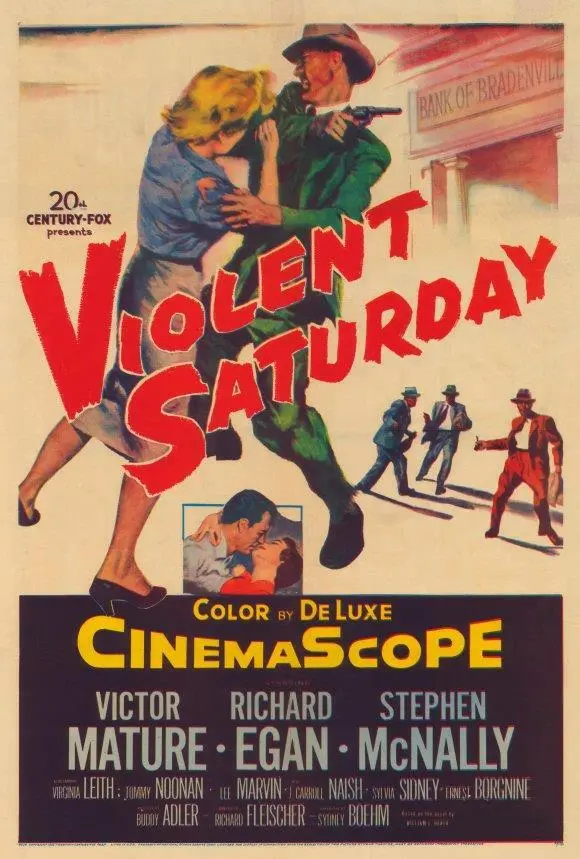
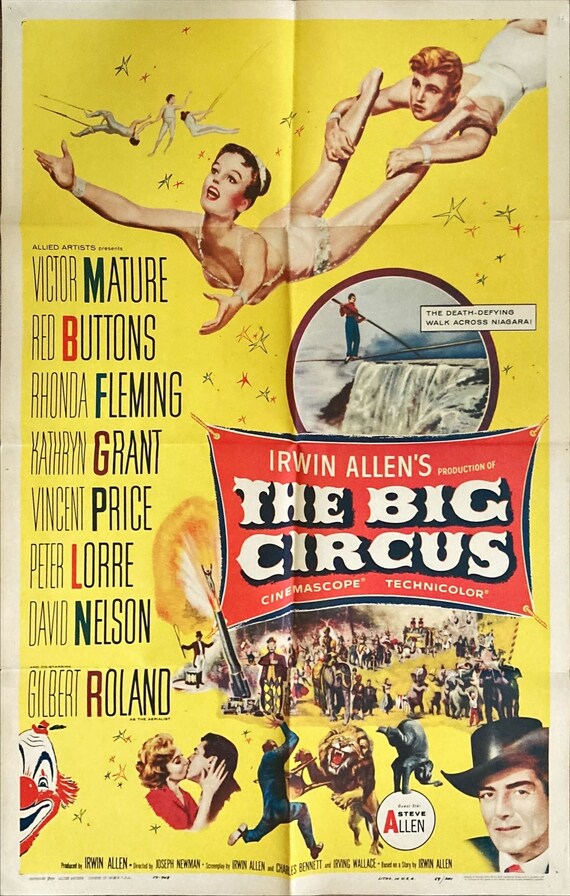
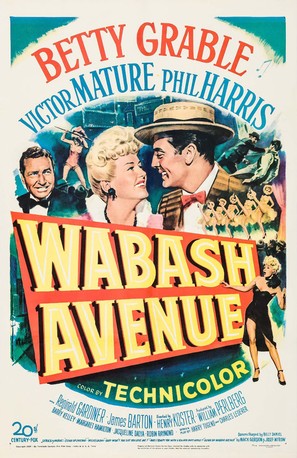
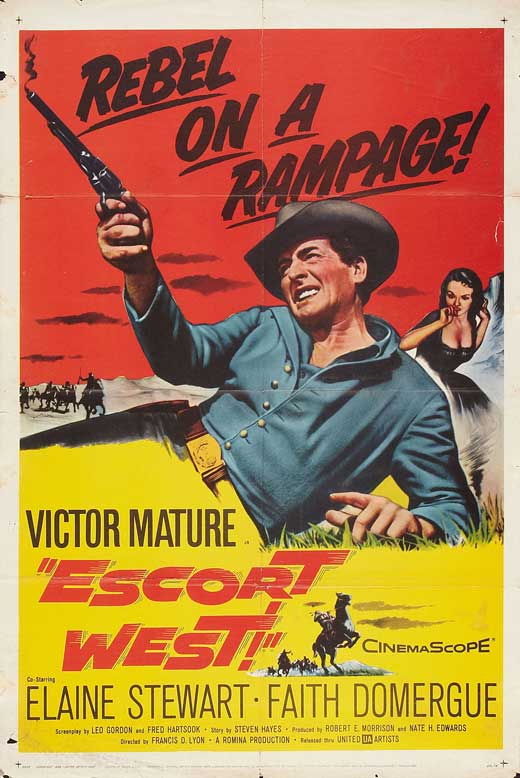
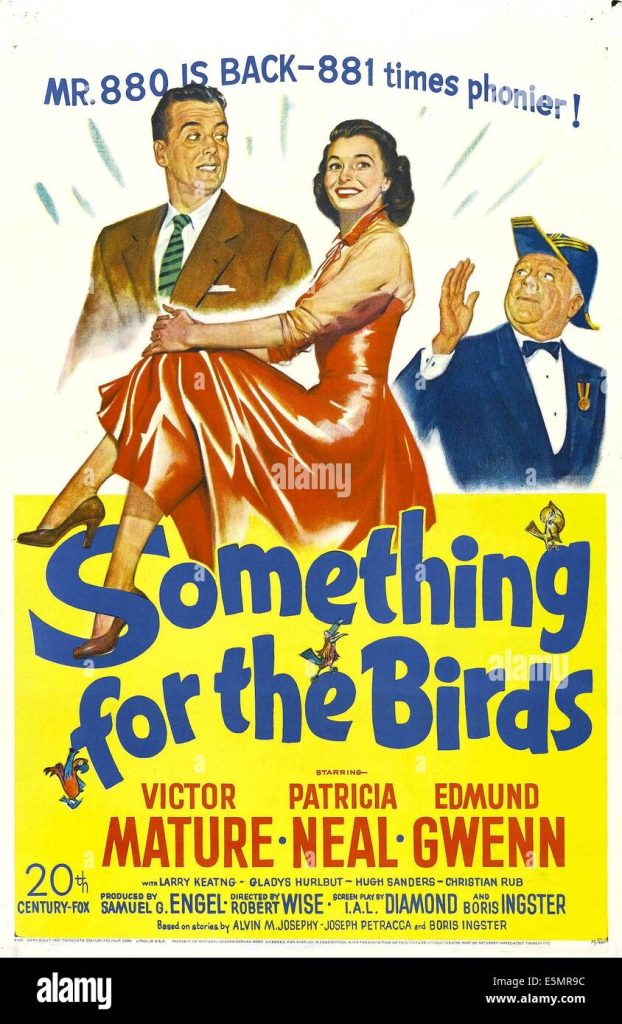
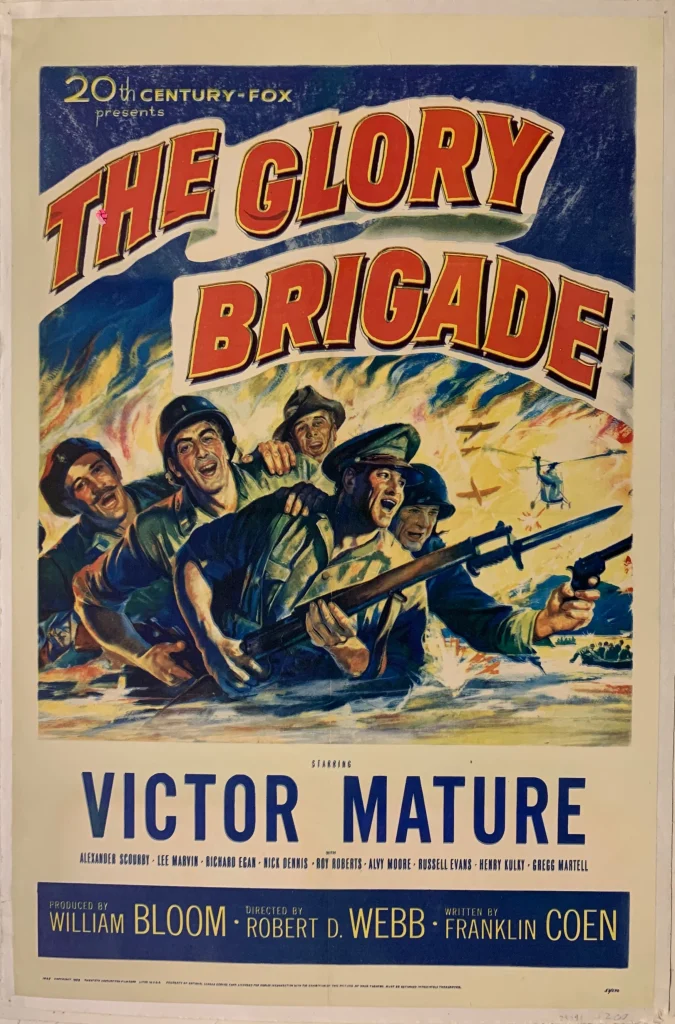
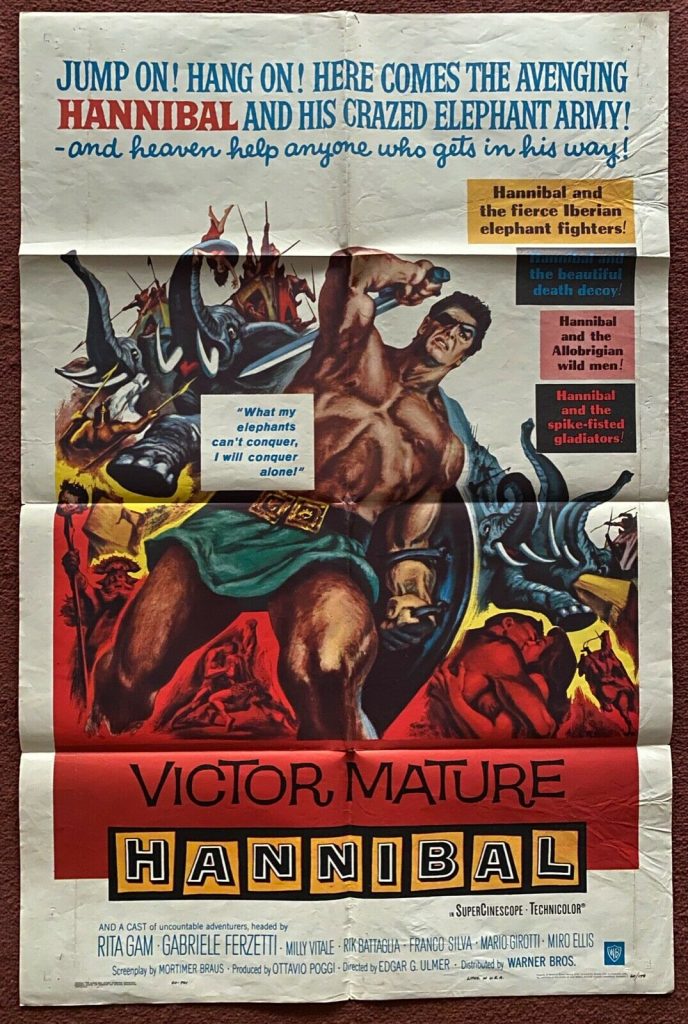
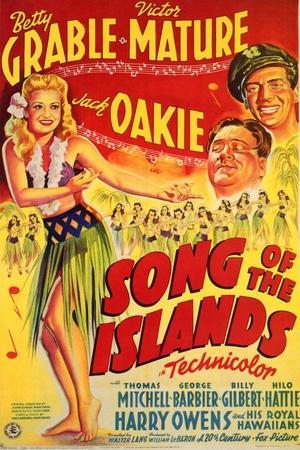
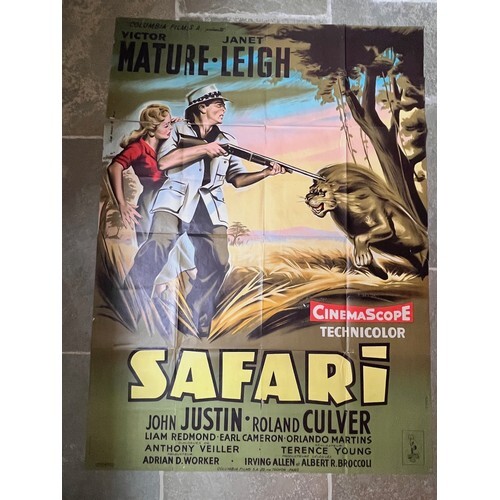
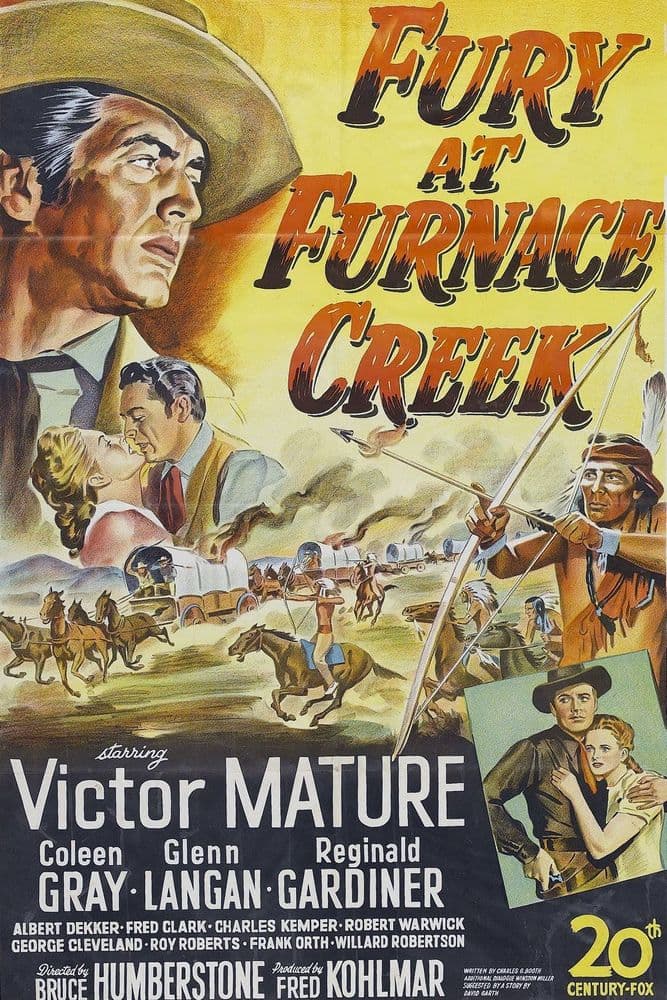
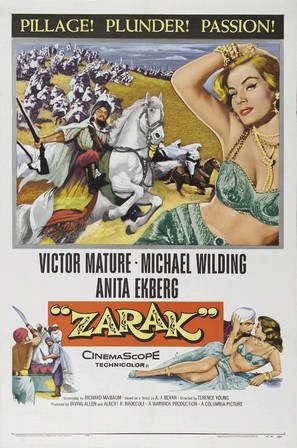
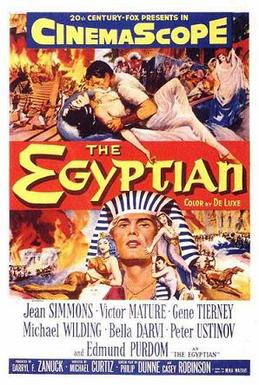
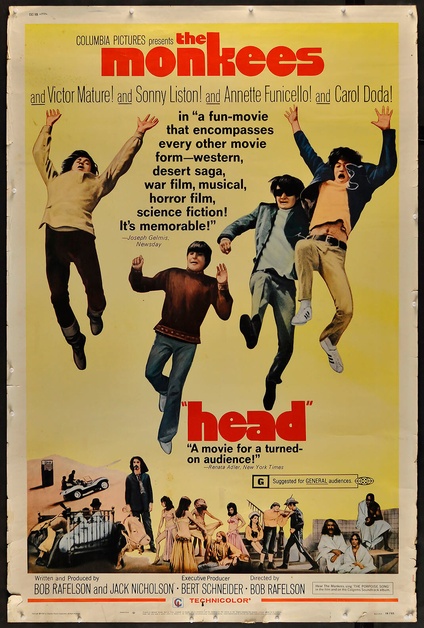
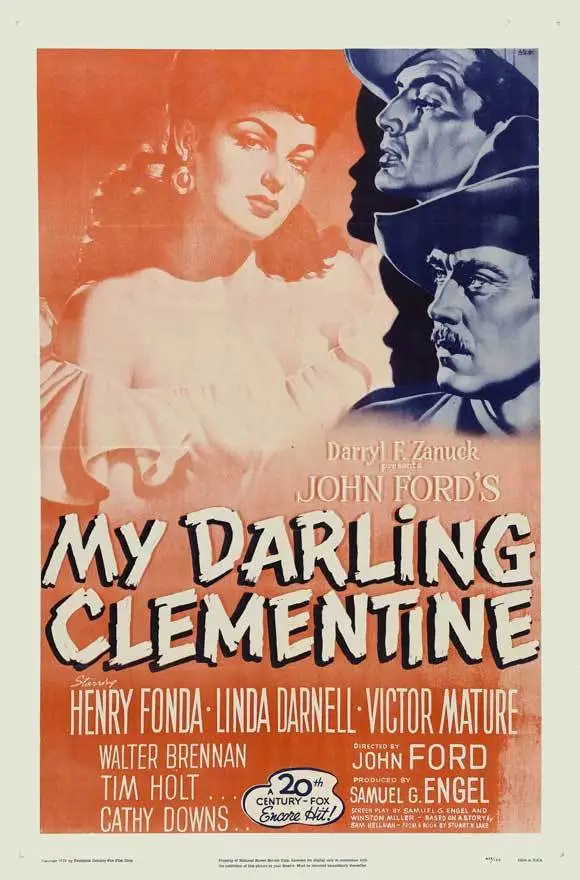
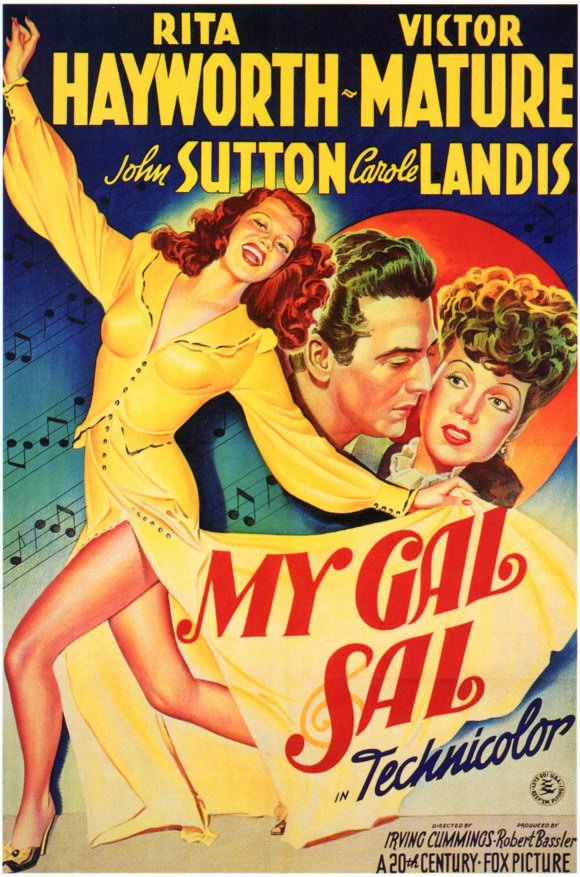
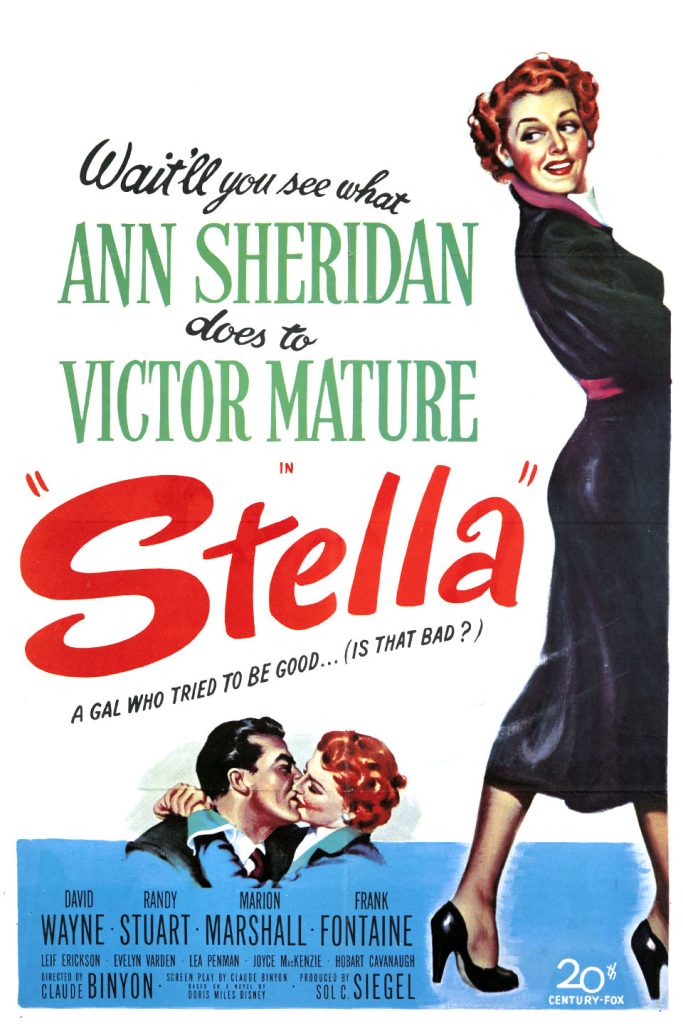
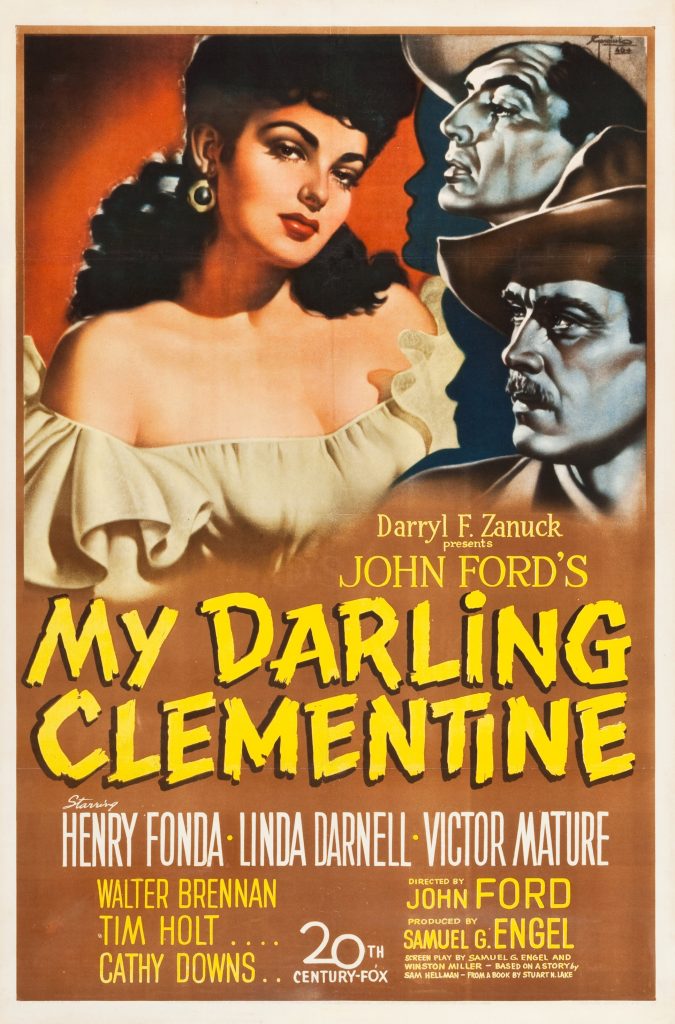
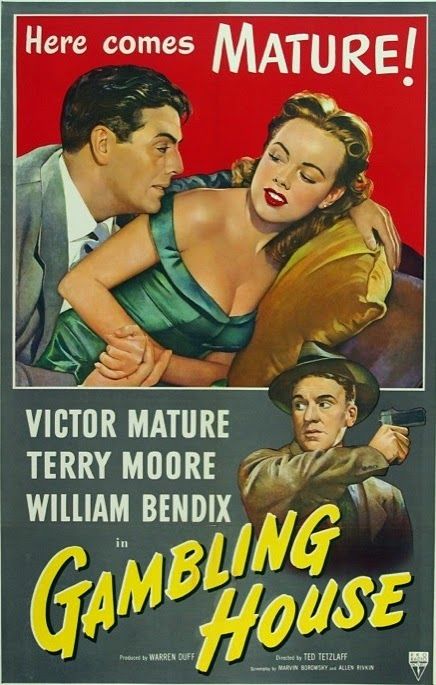
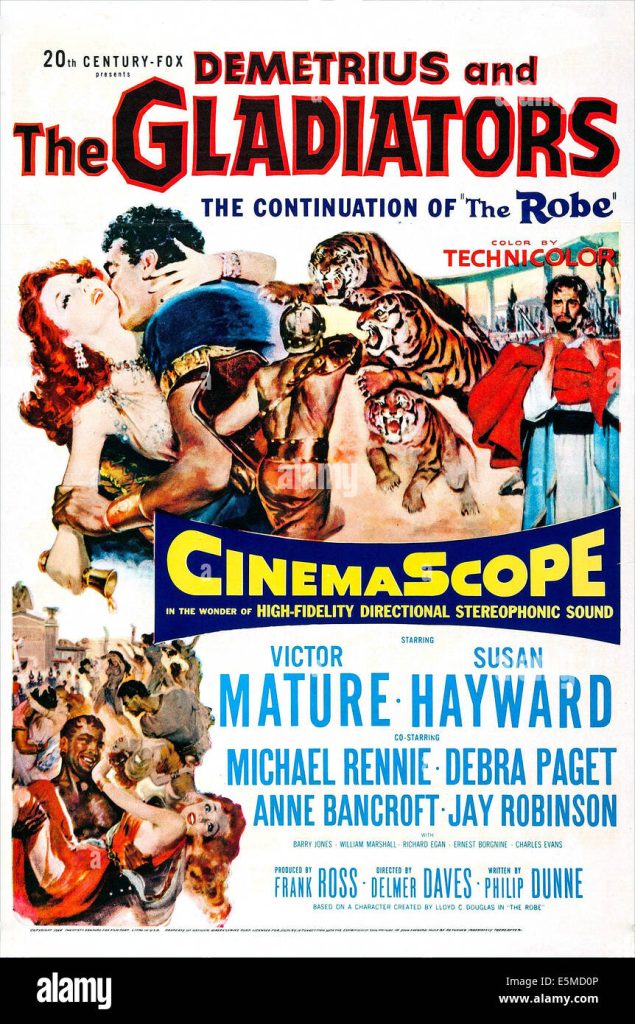
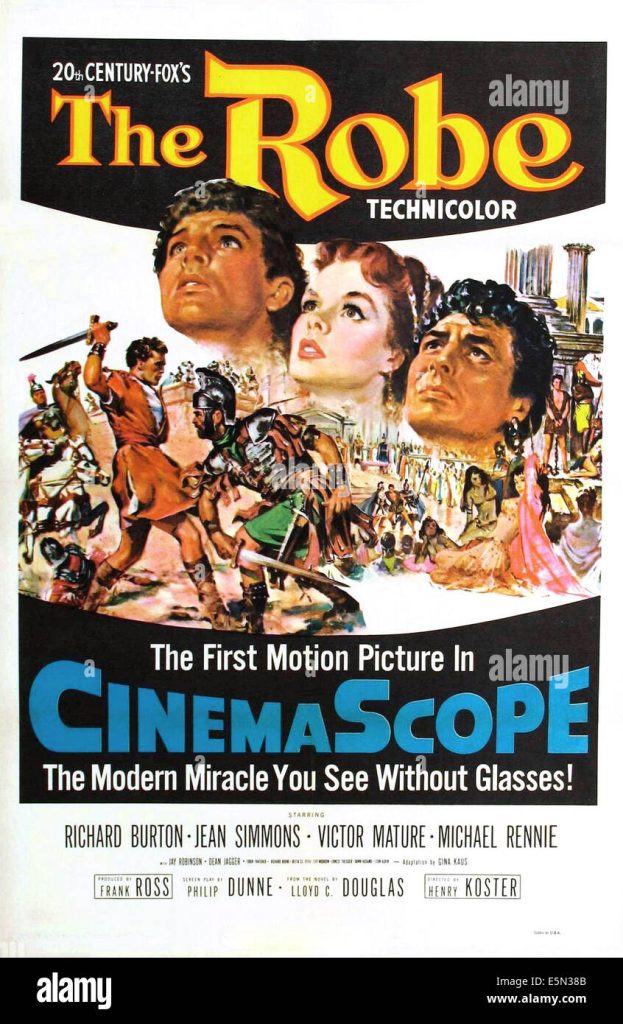
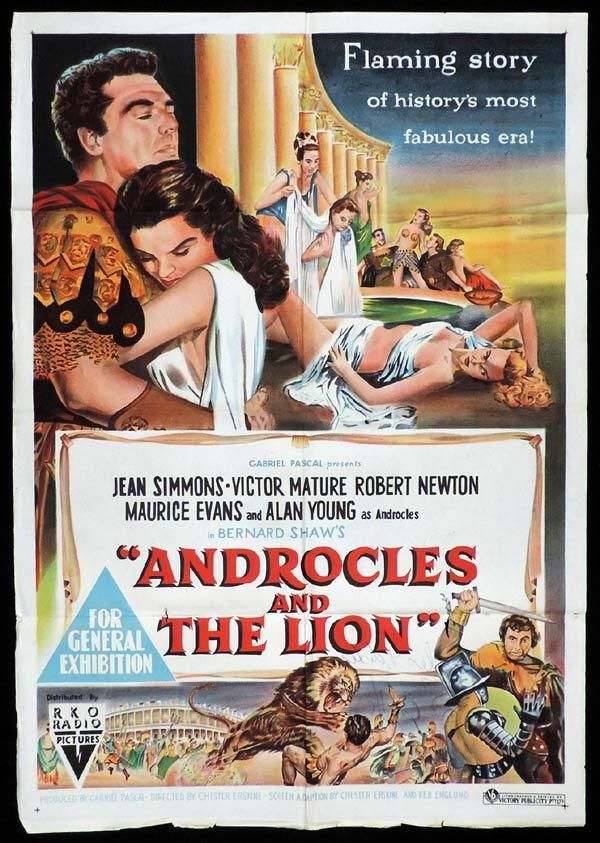
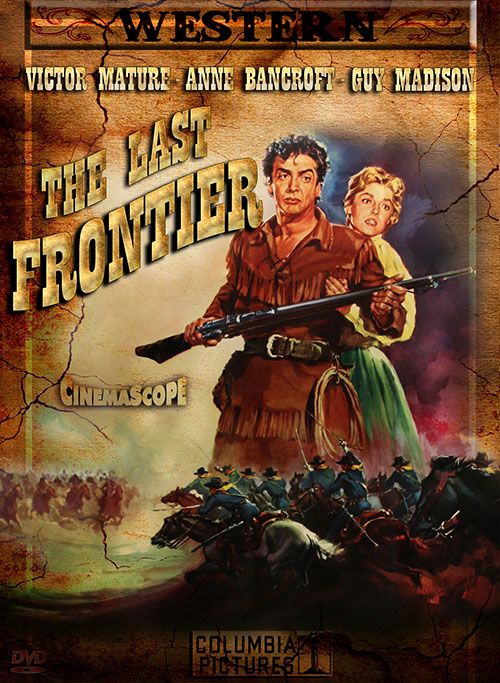
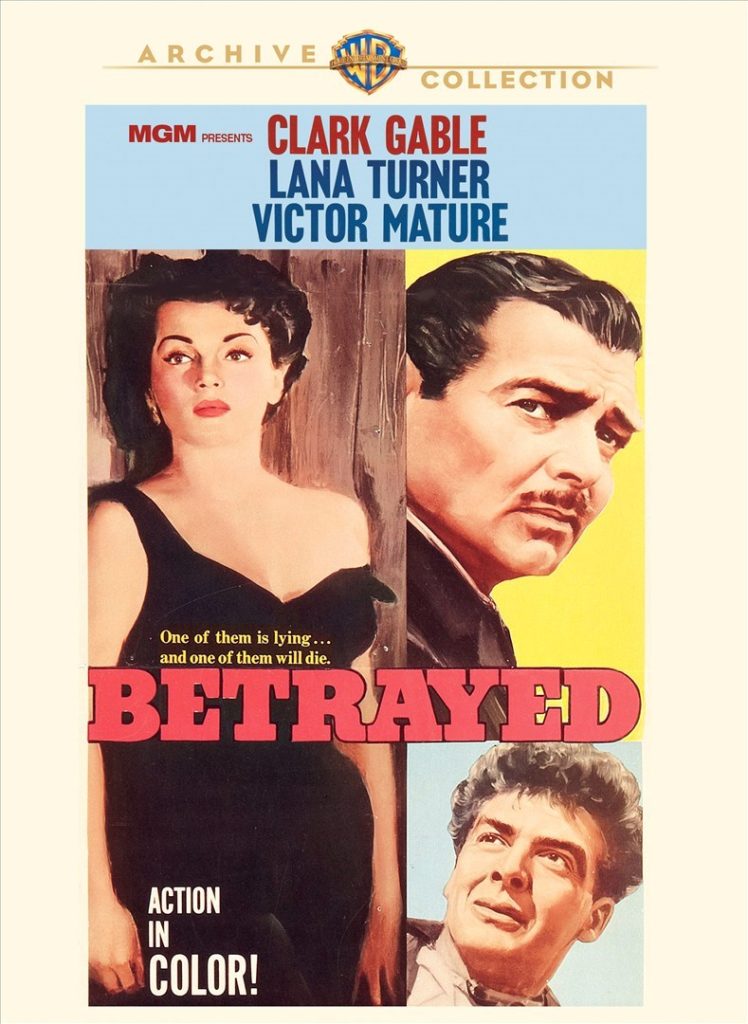
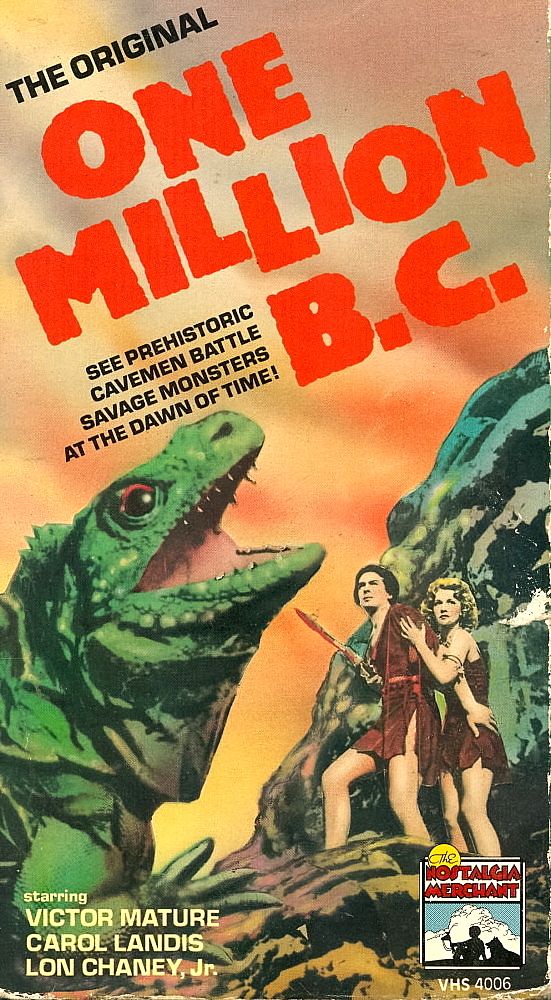
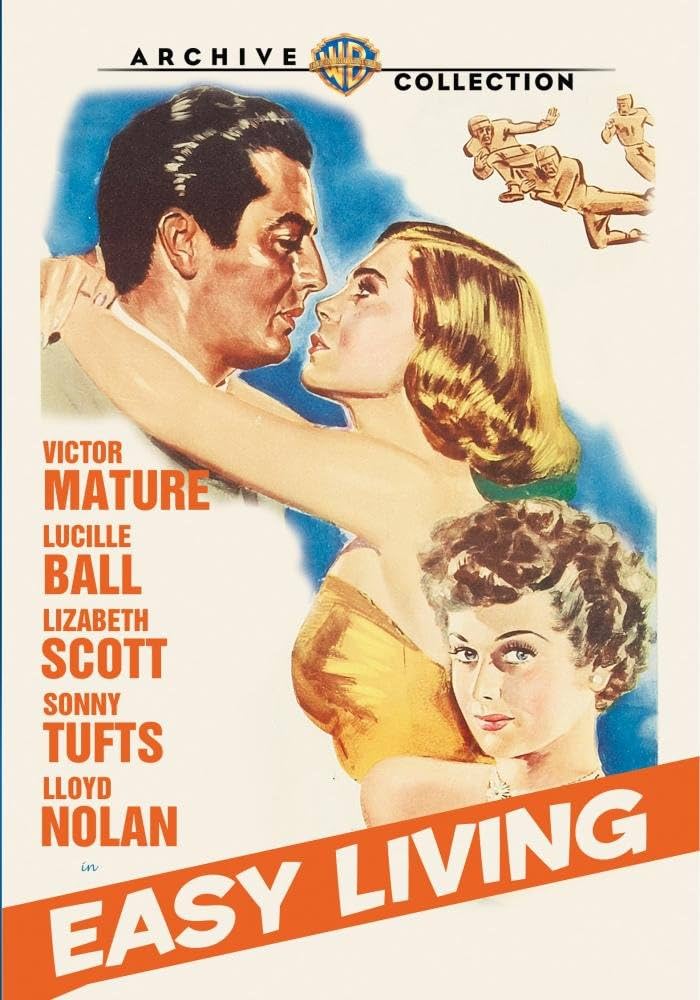
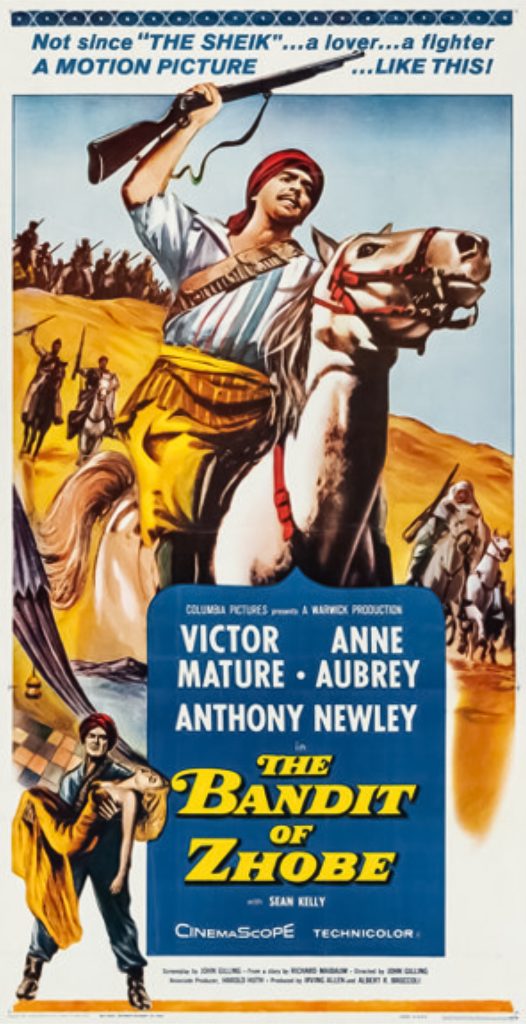
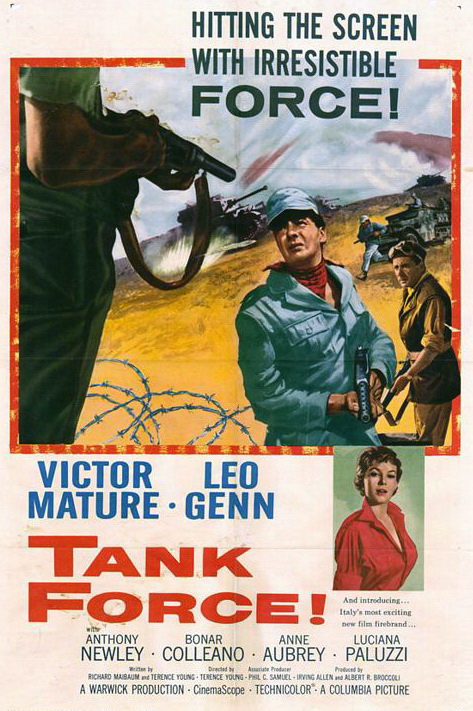
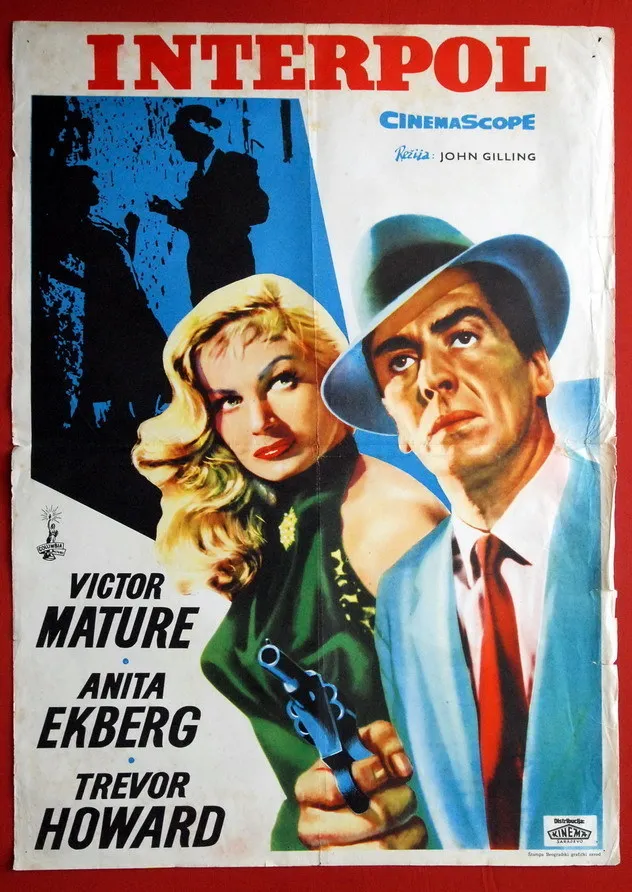
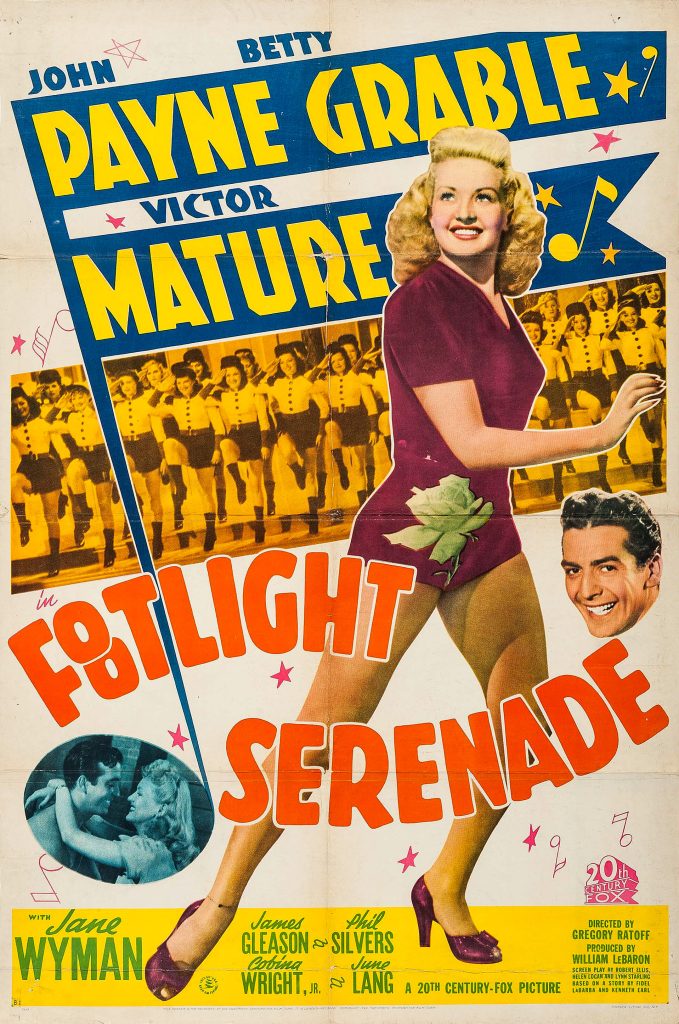
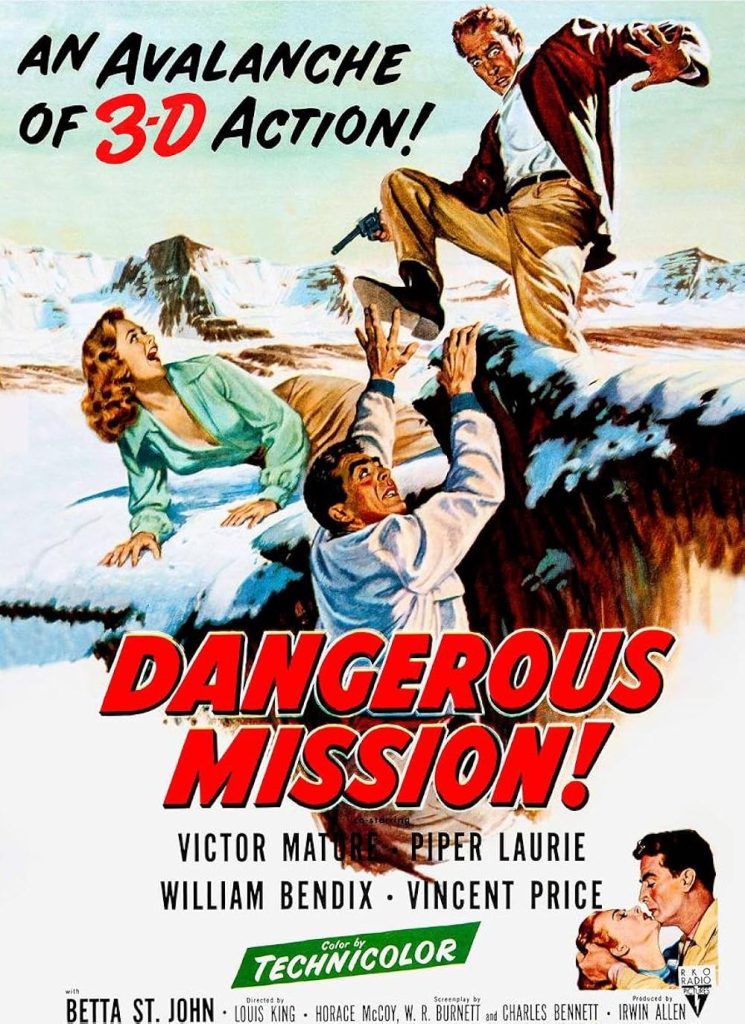
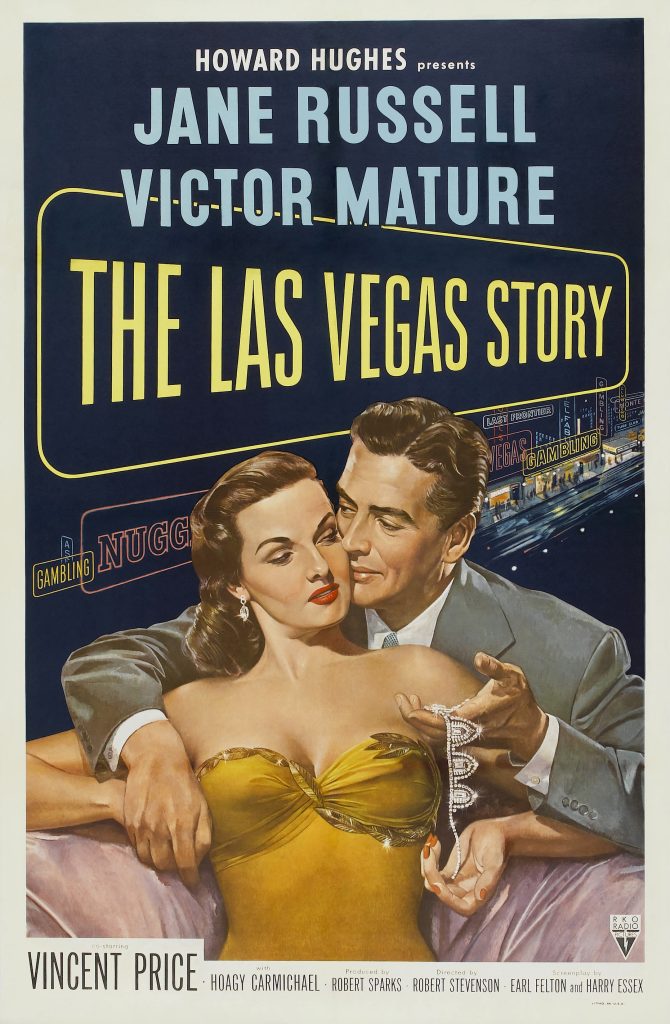
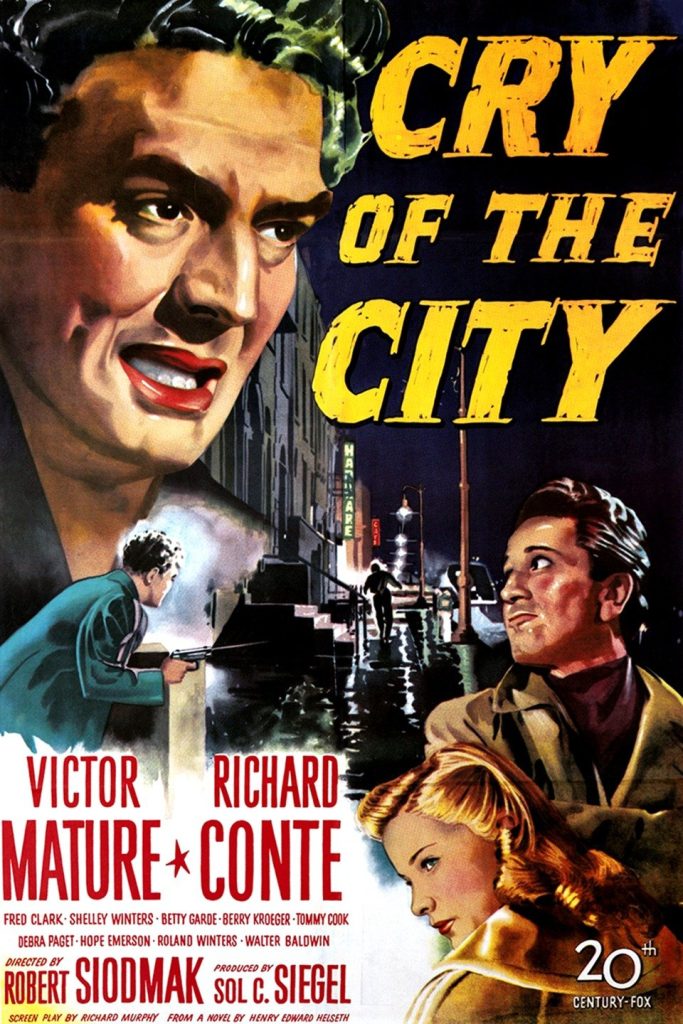
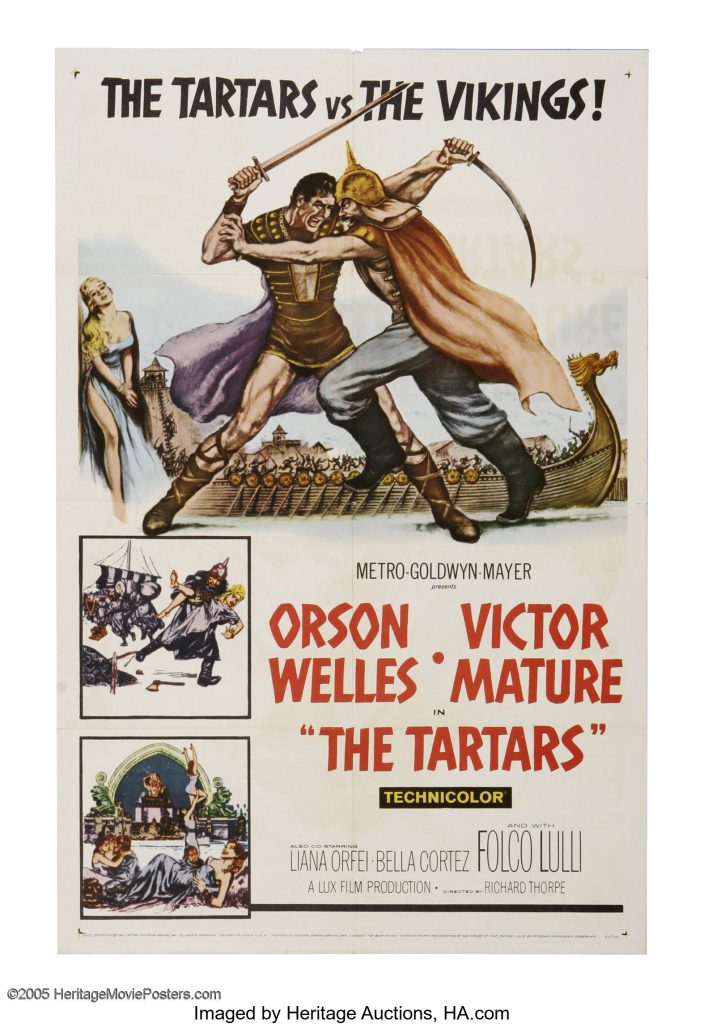
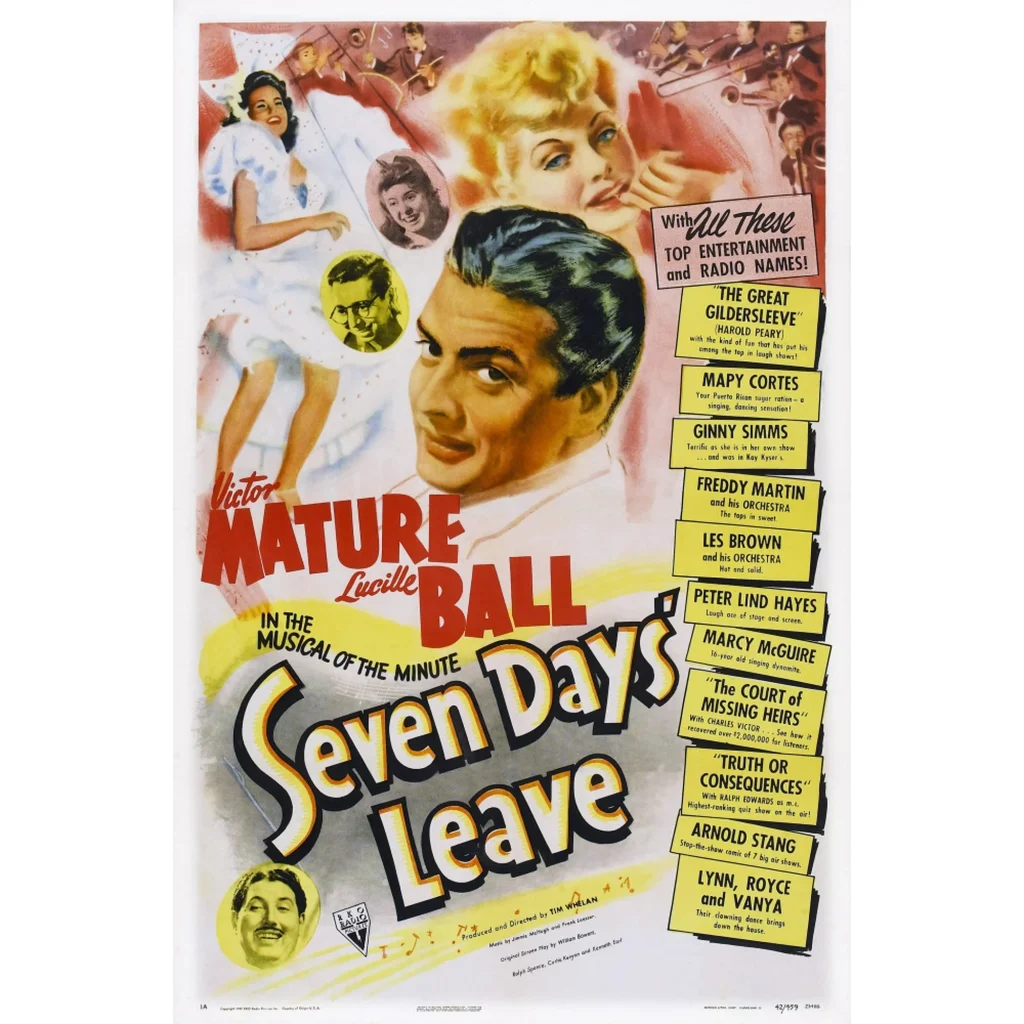
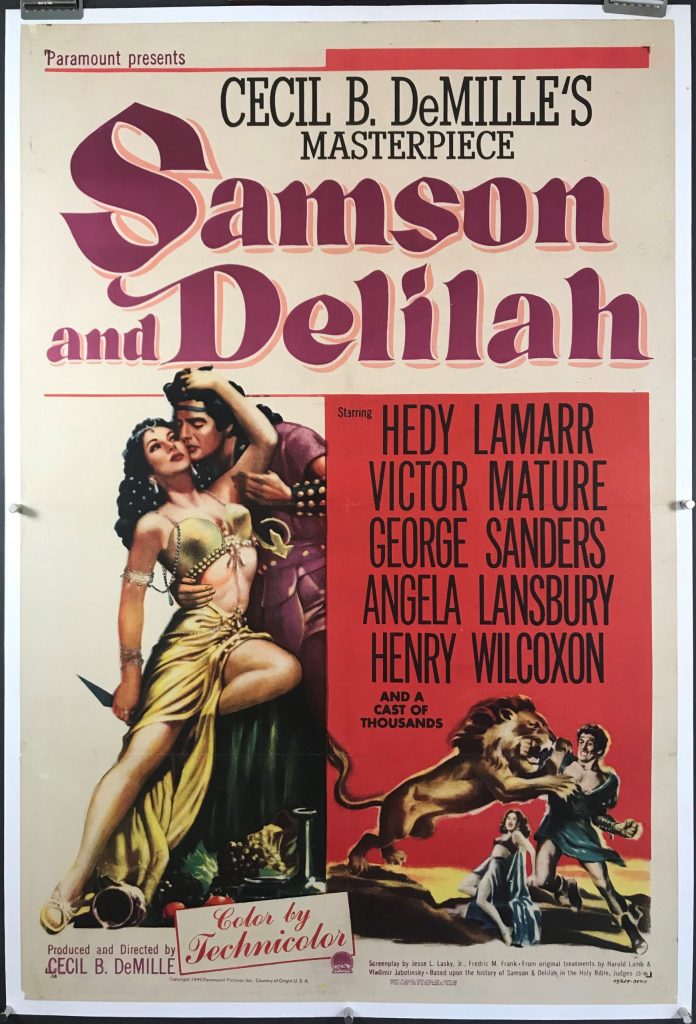
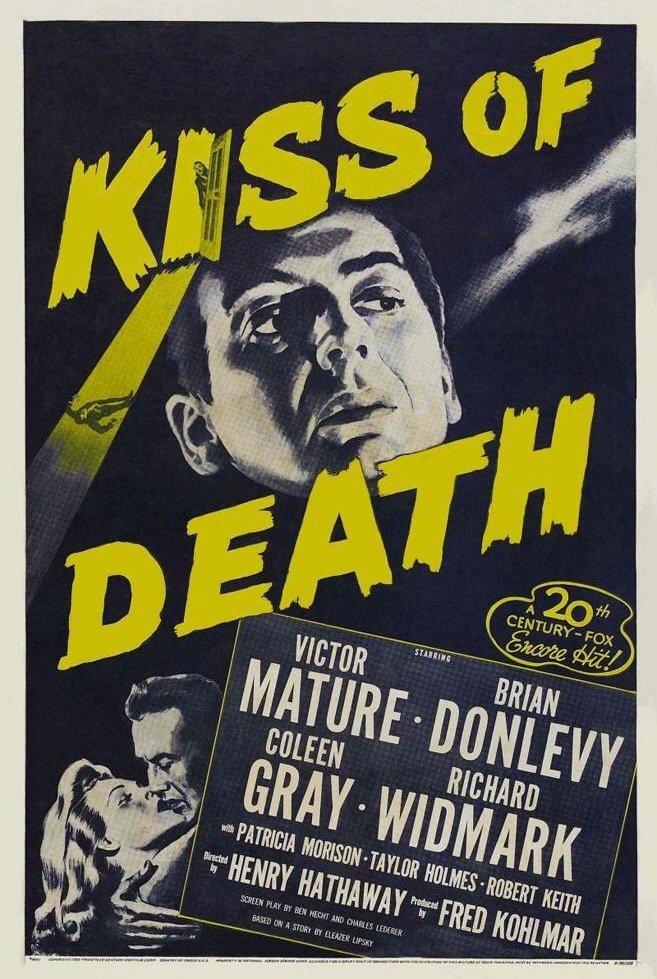
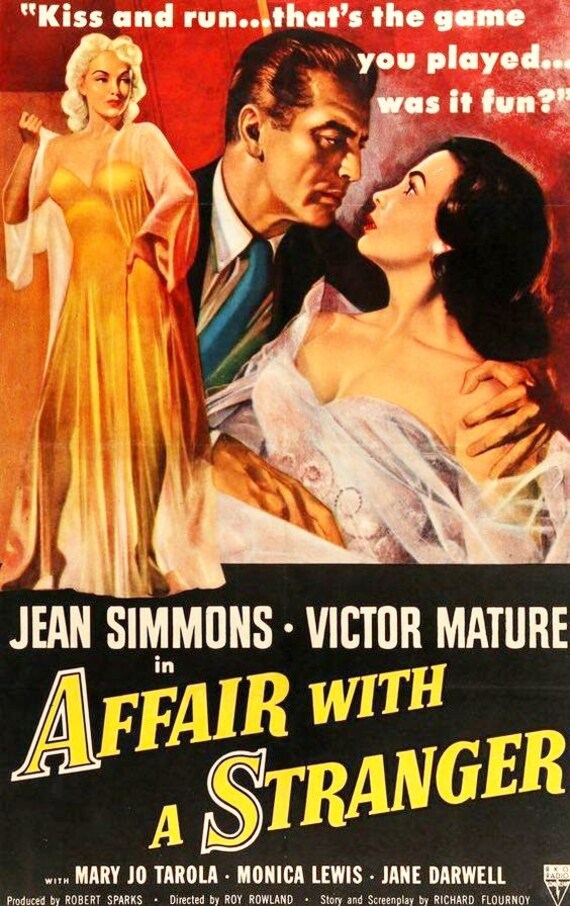
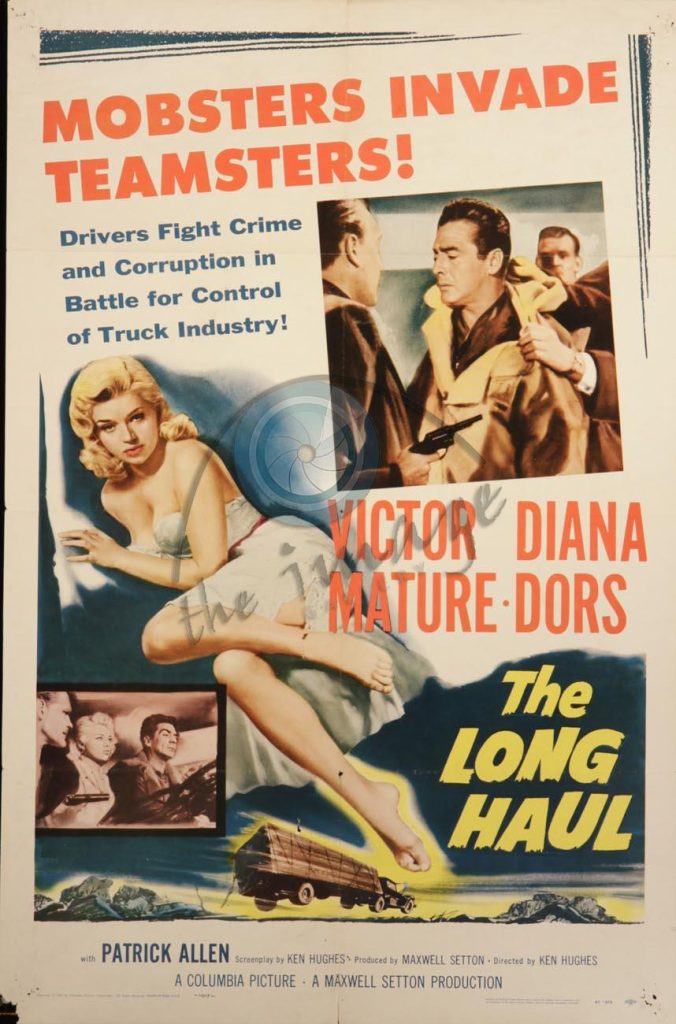
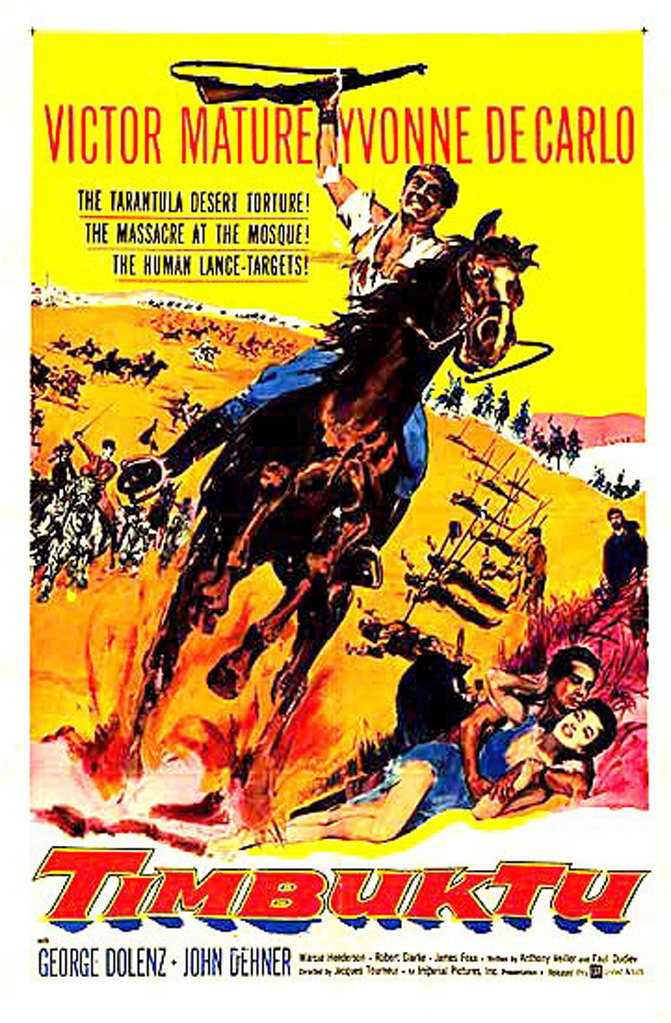
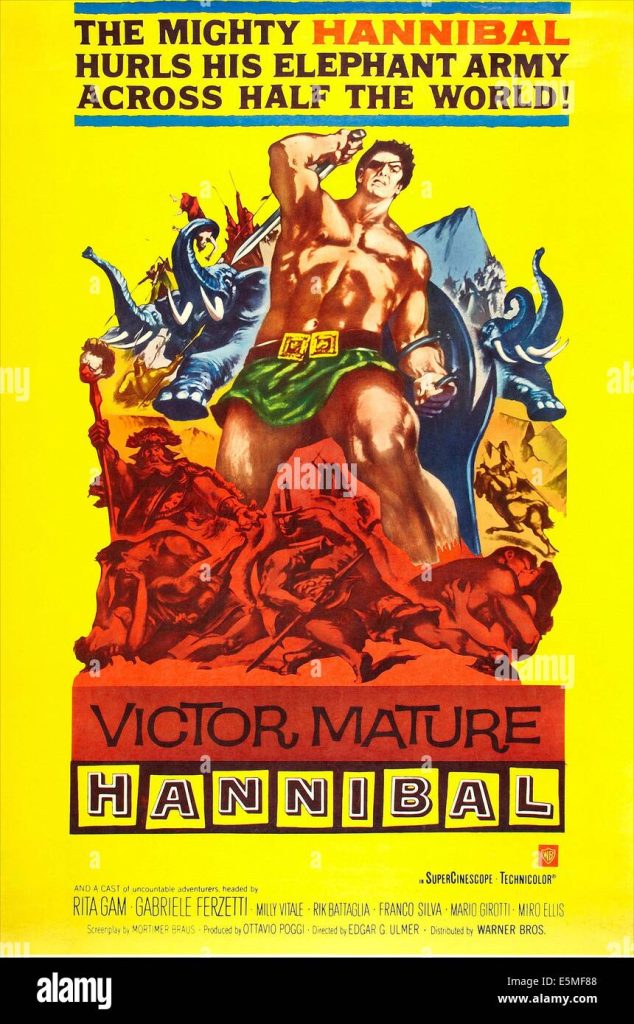
His craggy features, with their full lips and heavily lidded eyes were more controversial – women either loved them or loathed them – and in one of his films, Wabash Avenue, the heroine Betty Grable actually calls him “fishface”. But his physique made him a perfect Samson and hero of biblical epics such as The Robe. He never professed to be a great actor, and stated in 1968, “Actually, I am a golfer. I never was an actor; ask anybody, particularly the critics.”
The son of an Austrian scissors-grinder and a Frenchwoman, Mature was born in Louisville, Kentucky in 1913, and was a rebellious youth, thrown out of four schools. At 15 he took his first job, as a candy salesman, and aged 20 decided to try his luck in Hollywood. To gain experience he became a student actor at the Pasadena Playhouse. After appearing in over 60 plays he was given a leading role on stage in Ben Hecht’s To Quito and Back, in which he was seen by the producer Hal Roach, who was looking for an actor with the physique to play a prehistoric man in One Million BC (1940).
Roach first gave him a small role as a gangster in the black comedy The Housekeeper’s Daughter (1939) before starring him with Carole Landis in the caveman saga in which the pair battled gigantic reptiles. After two more films, Mature took a role on Broadway as one of the men in the life of a fashion magazine editor (Gertrude Lawrence) in the hit musical Lady in the Dark (1941). He was described in the show as “the most beautiful hunk of man you ever saw in your life”, and his performance brought him a contract with 20th Century-Fox.
After playing opposite Betty Grable in Bruce Humberstone’s entertaining mystery I Wake Up Screaming (1941), he was loaned to United Artists to portray the Arab lover of a gambling den-owner, Madame Gin Sling, in Joseph von Sternberg’s heavily sanitised version of the stage drama The Shanghai Gesture (1941). He then made four musicals, all released in 1942: Song of the Islands and Footlight Serenade, both with Grable, Seven Days Leave, with Lucille Ball, and My Gal Sal, with Rita Hayworth. (In both this film and Song of the Islands Mature’s singing voice was dubbed.)
In all four films, he played cocky, self-confident heroes, but the actor displayed throughout his career an engaging degree of self-deprecating humour. “Directors and actors who make films with one eye cocked on the Academy Award dismiss me as ham, uncured and uncurable,” he once said, “and scripters find it hard to resist the temptation to take a poke at me by writing cute little scenes in which I am supposed to cavort as a strong boy of sorts. But don’t get me wrong. I picked this racket and I love it.” Later he would delight in telling of his attempt to join a country club that did not permit actors. “I told them, `Hell, I’m no actor and I’ve got 28 pictures and a scrapbook of reviews to prove it.’ “
With America’s entry into the Second World War, Mature served 14 months of active duty prior to being cast in the service revue Tars and Spars. He returned to the screen as the tubercular “Doc” Holliday in John Ford’s great western My Darling Clementine (1946) and received some of the best reviews of his career. The critic Richard Griffith wrote,
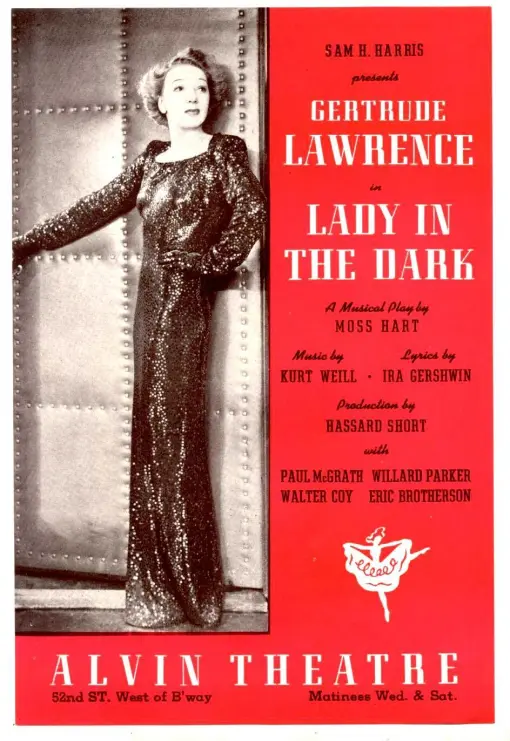
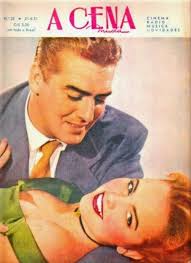
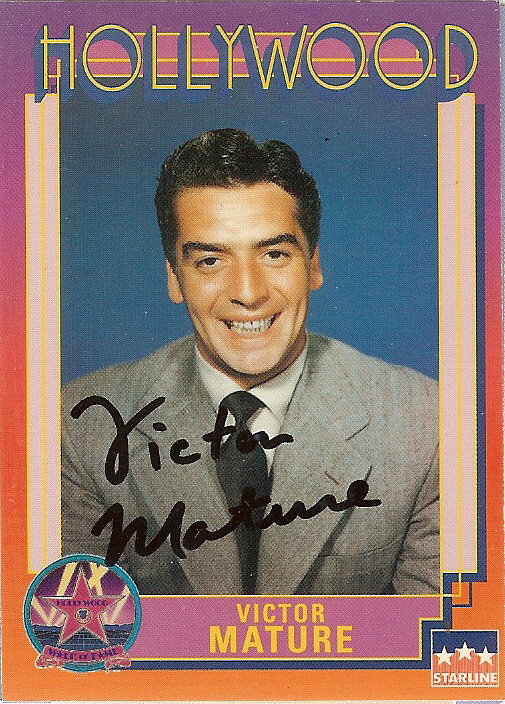
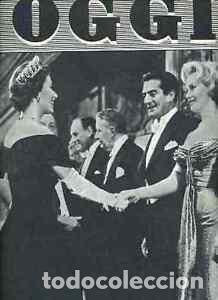
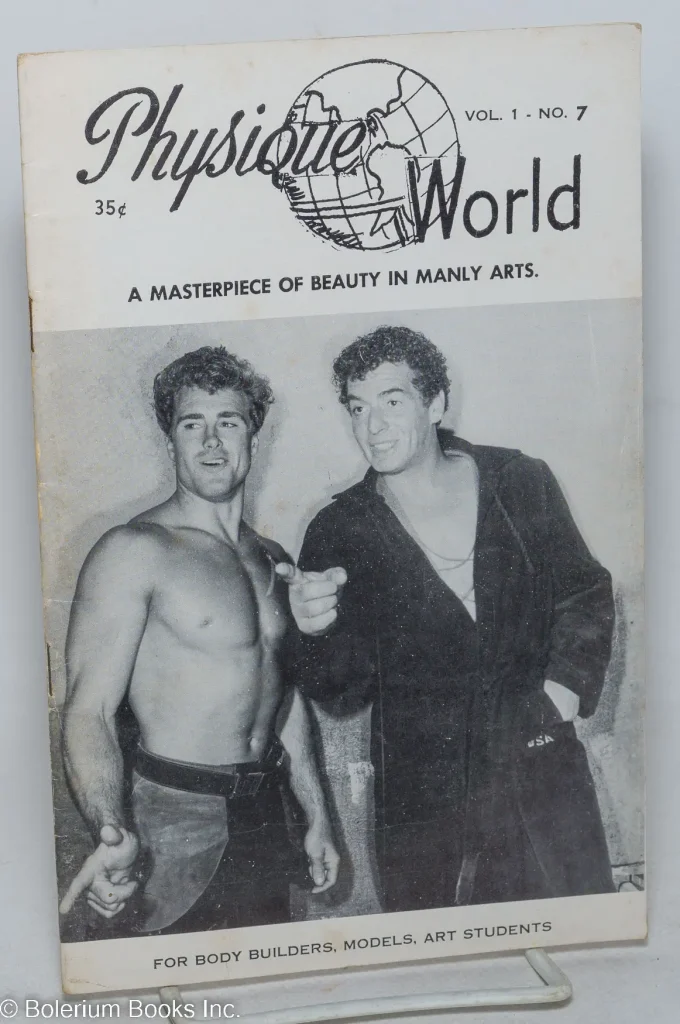
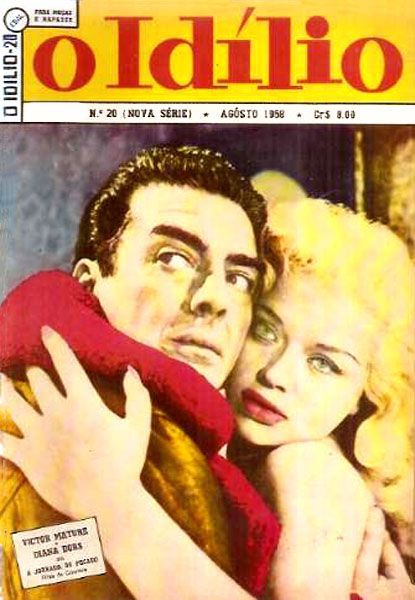
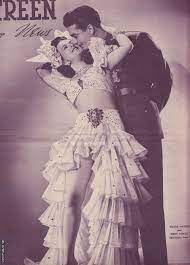
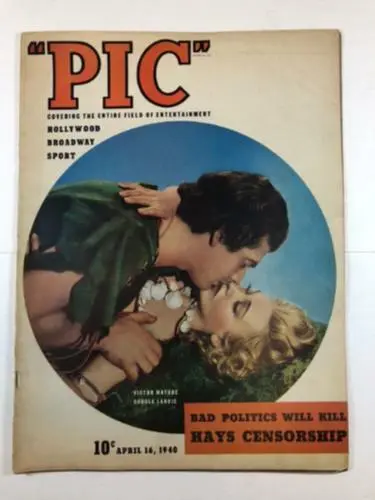
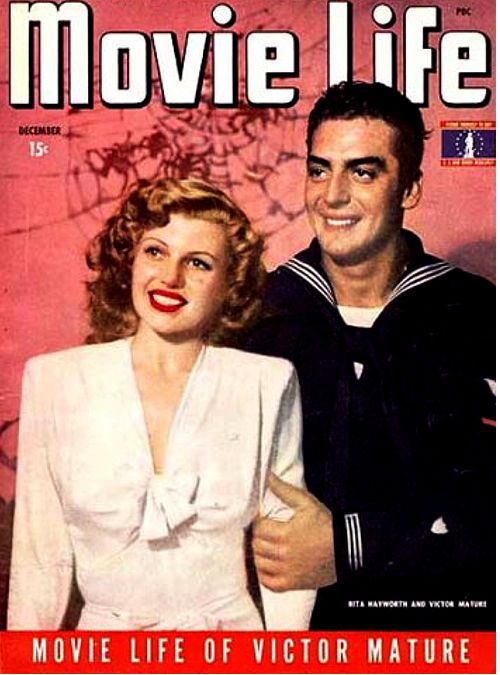
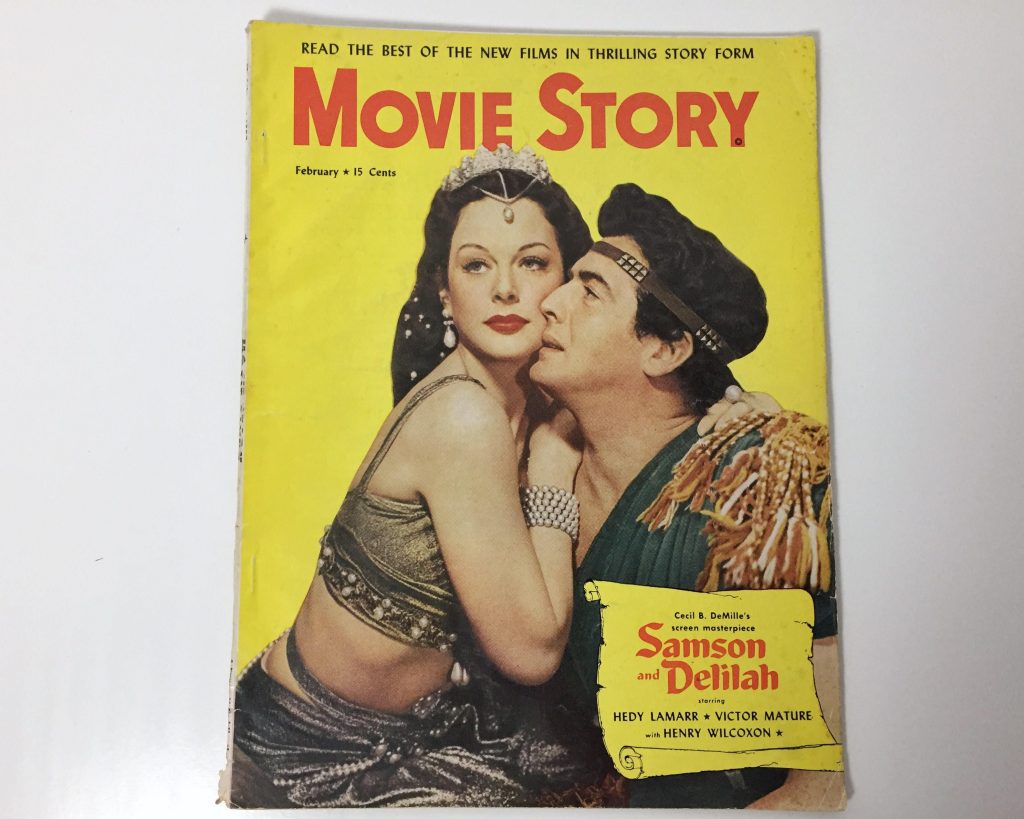
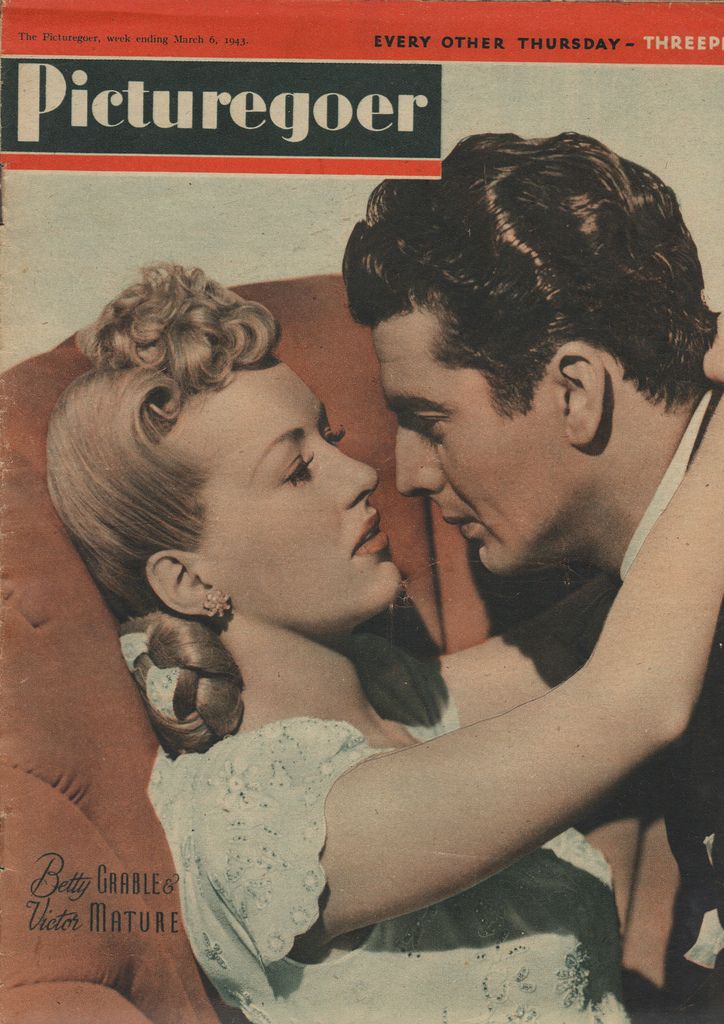
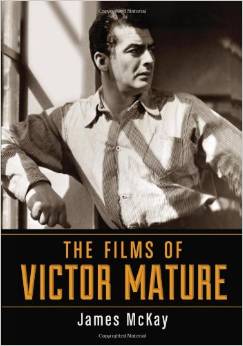
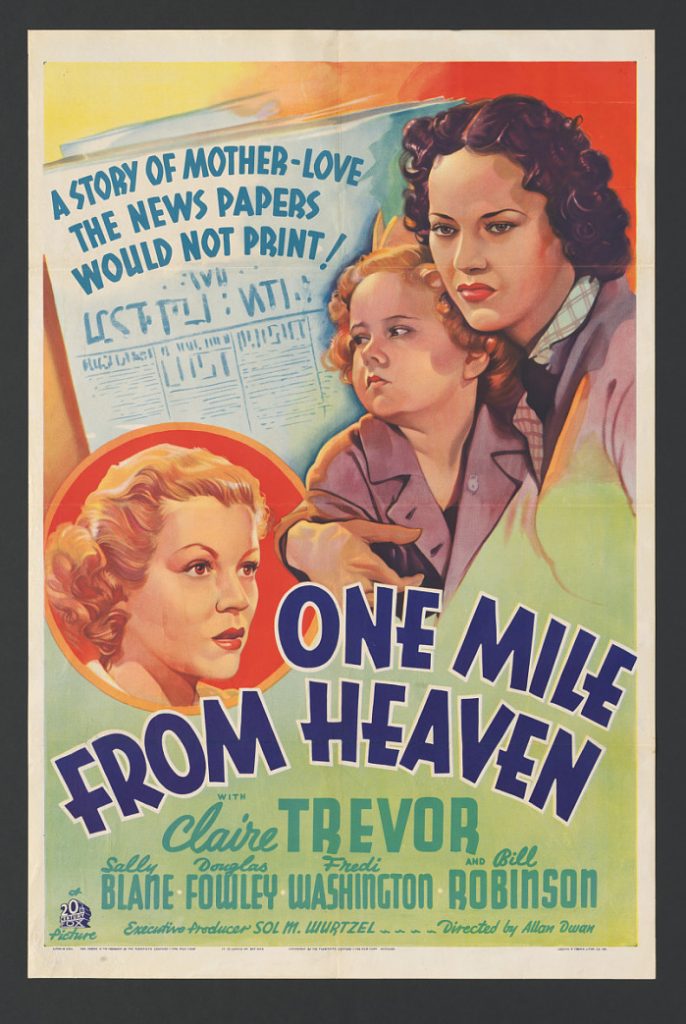
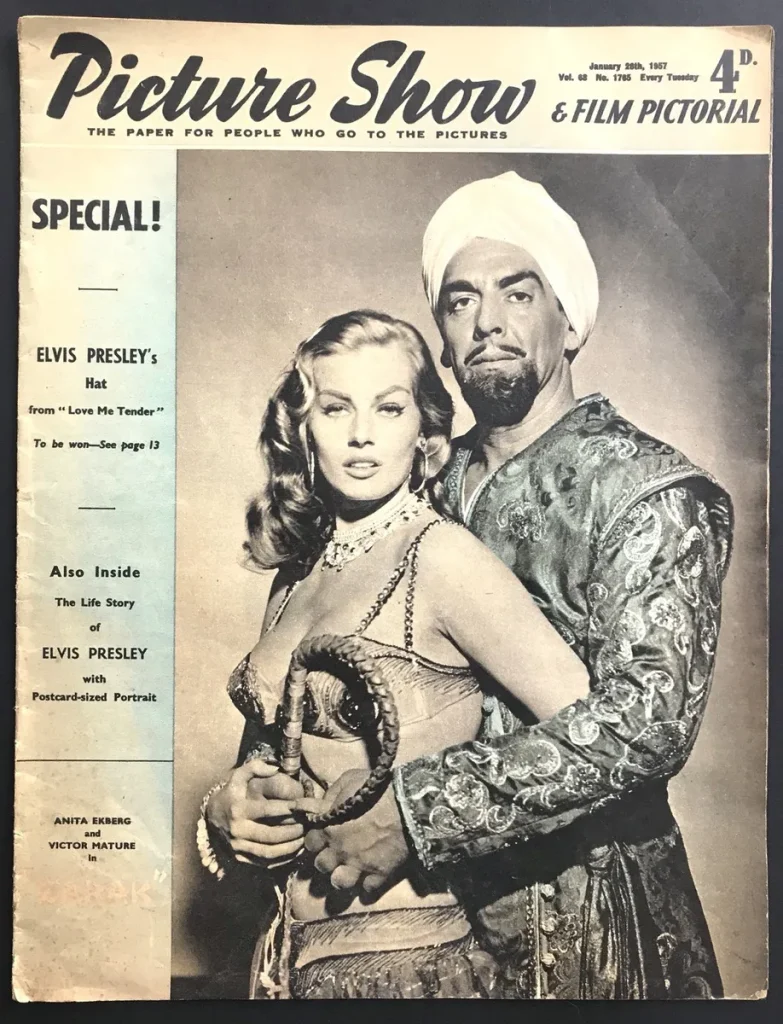
Mature is hardly an obvious choice for the role of a tubercular gunman concealing under silken menace his despair at the loss of a Boston medical career. But the performance comes off amazingly. Mr Mature’s face is a basilisk, his eyes look inward; in detail of manner and appearance he successfully suggests the desperate remittance-man.
Henry Hathaway’s Kiss Of Death (1947) starred Mature as a thief who collaborates with the police in order to get out of prison. Time magazine said, “Mature apparently needed nothing all this time but the right kind of role.” Robert Siodmak’s Cry of the City (1948) was another fine thriller in which Mature was a cop who has to hunt down his former childhood friend.
The following year Mature had his best remembered role in Cecil B. DeMille’s spectacular Samson and Delilah (1949). Mature later described his co-star Hedy Lamarr as “not exactly a ball of fire – she just seemed to be loping along”. The film was an enormous hit though critically dismissed, Groucho Marx famously quipping, “I don’t like any movie where the leading man’s chest is bigger than the leading lady’s.” Mature had one major disagreement with his director:
DeMille came up to me and said, “Victor my boy, we’re ready to do the scene where you fight the lion. We have a real lion, but he’s very tame, a sweet old lion. His name is Jackie. When you fight him, I’d like you to put your head in his mouth. Now don’t worry – Jackie has no teeth.” I said, “Mr DeMille, I don’t even want to be gummed!” I did not do the stunt.
Despite the film’s success, subsequent roles for Mature were not distinguished – they included the Grable musical Wabash Avenue (1950), a thriller The Las Vegas Story (1952) with Jane Russell, a dull transcription of Shaw’s Androcles and the Lion (1953) with Jean Simmons, and a romantic comedy with Simmons, Affair With A Stranger (1953). Then he was cast as Demetrius, the slave whose violent nature is tamed by conversion to Christianity, in The Robe (1953), the first film released in CinemaScope. The following year he starred in a sequel, Demetrius and the Gladiators, then played two villainous roles, as the soldier who becomes Pharaoh in The Egyptian (1954), and a Second World War traitor in Betrayed (1954).
After the thriller Violent Saturday (1955) he left Fox to freelance. Much of his work after this was done in Europe, but they were mainly mediocre action films, including Safari (1956), Zarack (1957), The Long Haul (1957) and No Time To Die (1958). He returned to the United States to work with the veteran director Frank Borzage on China Doll (1958), a bizarre flop about a man who accidentally buys an Oriental wife, then ominously starred in Escort West (1959) for Francis D. Lyon, who specialised in directing low-budget westerns featuring fading stars.
Italy was proving a viable source of income for former Hollywood names, and Mature starred there in two historical adventures, Annibale (1960), in which he played the title role of the Carthaginian general, and I Tartari (1961), co-starring Orson Welles. After the latter Mature officially “retired” but he reappeared to endearingly parody his old screen image in Vittorio DeSica’s After The Fox (1966), written by Neil Simon and starring Peter Sellers. He continued to do occasional films, including Every Little Crook and Nanny (1972), in which his performance as an ageing Mafioso was described by Esquire as “massive, vigorous, vulgar, authentic, and splendid”.
In the television film Samson and Delilah (1984), he played Samson’s father. Asked how he felt about the role, he replied, “I’d have played Samson’s mother if they’d asked me.” He did not, though, need the money, since he was extremely wealthy, having invested in property, restaurants and electronics, and enjoyed life on his luxury ranch near San Diego. “I loaf very gracefully,” he commented. “There’s a lot to be said for loafing if you know how to do it gracefully.”
Victor John Mature, actor: born Louisville, Kentucky 29 January 1913; five times married (one daughter); died San Diego, California 4 August 1999.
The above “Independent” obituary can now be accessed online here.

